Image
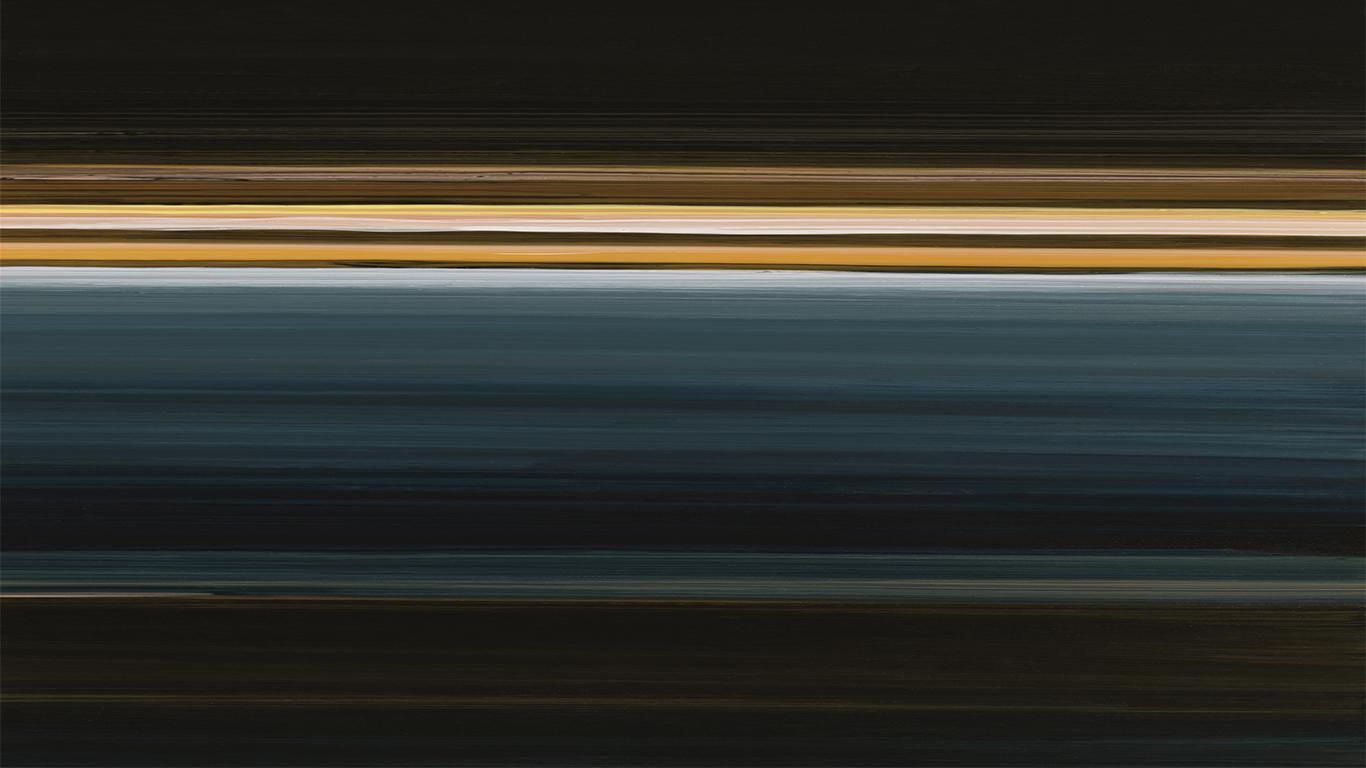
A Little More Like Water
Jackie Scott
Image
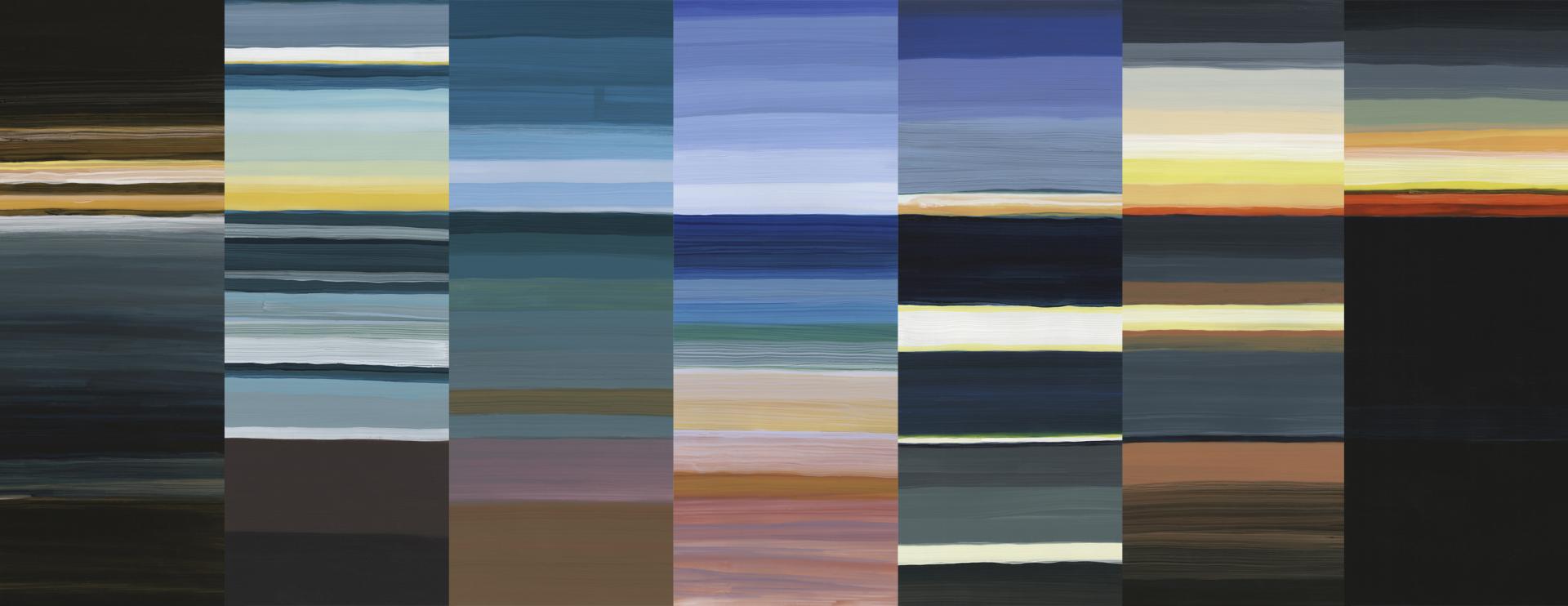
Abstract
“The waves broke on the shore.” These are the final words of Virginia Woolf’s 1931 novel, The Waves, which follows the passage of a day at the ocean’s shore. The book serves as a backdrop for the life of six characters: Bernard, Susan, Neville, Rhoda, Louis and Jinny. Interludes are interjected between the chorus of these characters, depicting the arc of life from early childhood to old age and death. The relentlessness of the rhythm of the tide, at first pulsing and hard to ignore, becomes ceaseless white noise that eventually falls to the background as the reader follows the chorus. The day’s initial drama—a spectacular sunrise, rays sparkling on the surface of the water, shore birds singing to each other and diving to catch breakfast— fades as time progresses. Eventually, as characters pass away and grow apart, we are left with the words of just one, Bernard, meditating on the ceaselessness of the progression of life in the face of death.
This thesis uses Woolf’s experimental work as a framework of sorts, following the individual experiences of six people, exemplifying the relationship between grief, memory and the ocean. Using the ocean as its backdrop, this collection lays bare the realities of grief. It brings those who have experienced it together, eschewing the notion that talking about death in its aftermath is something to be avoided. These separate experiences collide with one another like waves, sometimes softly slipping into a unified palette, and sometimes with dissonance as a group of waves crash up against a rock. This thesis is a collection of textiles inspired by and made for these individuals, layered playsuits, sweaters, and pants, made to be worn together in the landscape that they evoke. It is also a celebration of process, both in the making of the work and in moving forward with life after loss. By shedding light on the similarities and differences of individual experiences of grief, and by exposing this collection to the elements, this thesis hopes that we may let ourselves become softer, more willing to flow in and out with the tides, a little more like water.
Image

Image
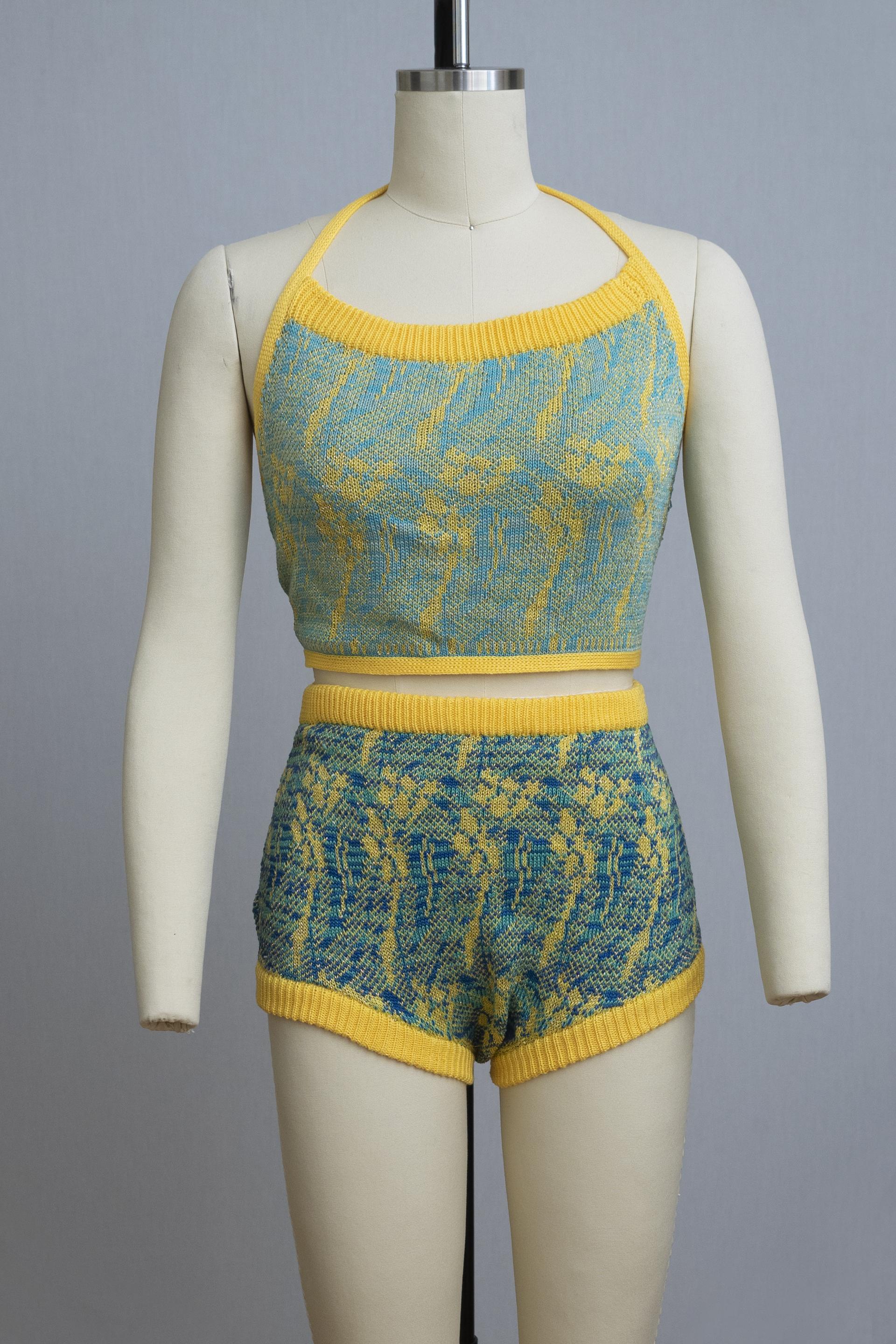
Image

Image
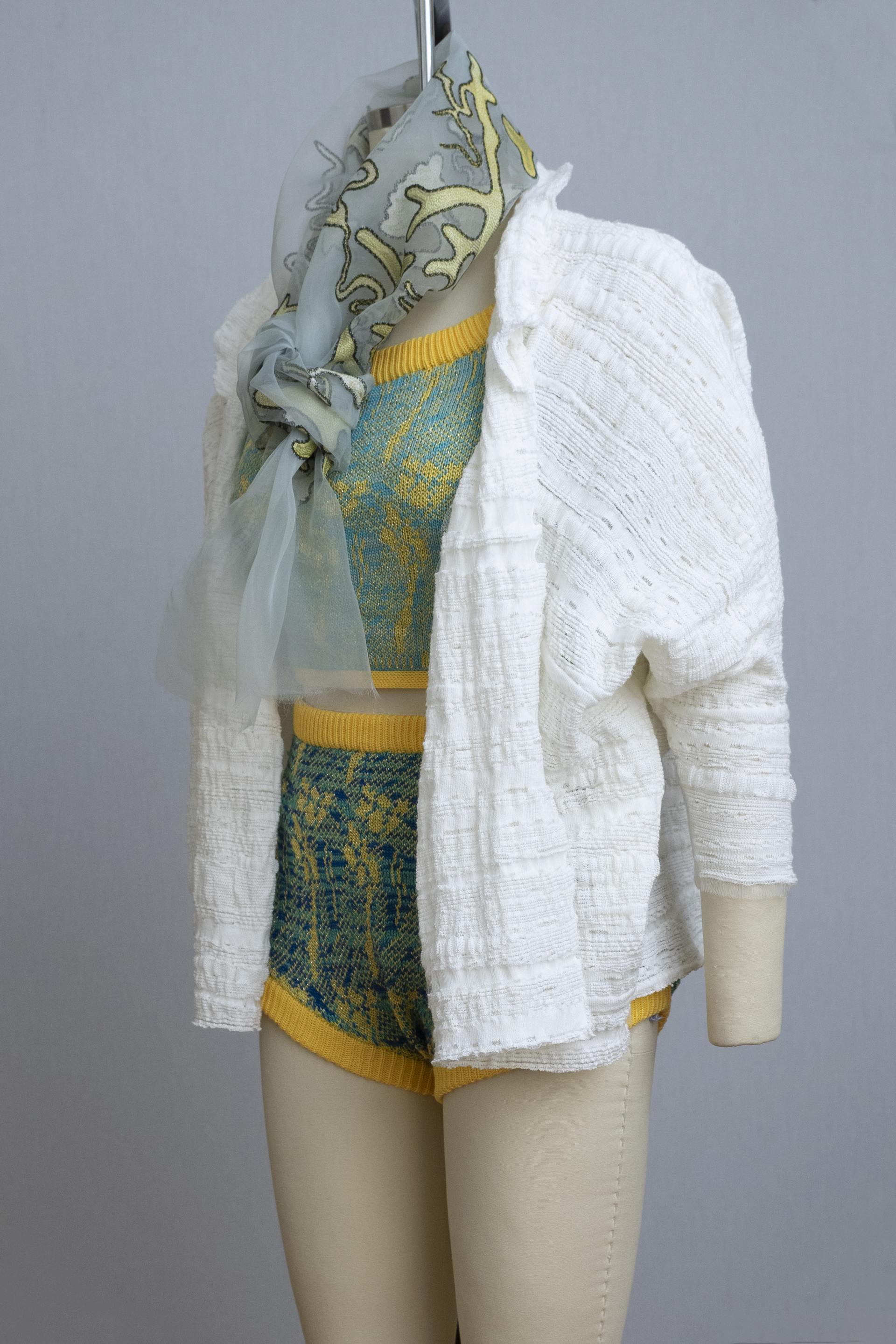
Image

Claire Spelkoman
Claire and I met through mutual friends in Boston, and happened to move to Providence at around the same time. Since then, we have shared a couple of glorious beach days—the privilege of living in Rhode Island—and also discovered that we both have dead dads. She has been able to integrate her grief fully into her life, acknowledging its weight without letting it burden her. Hearing her speak about the way her father lived his life unafraid to be present in his emotions makes it clear that she comes by that ability naturally. We carry those we lose within us, and if we’re lucky, they are people who have taught us how to feel deeply without letting our emotions overwhelm.
Jackie How old you were when your dad passed away, and what was your life like around that time?
Claire Let’s see. It was just six years ago, so that would have made me 25. I was just coming out of a really shitty time. I had just had the messiest breakup ever and I was living in Westchester County, New York, making no money and paying off a graduate degree. My dad had had lung cancer. He’d had surgery. It seemed like it was going well, except he was not having a good time with chemo. He was having a really hard time eating, but as far as we knew he was on the up and up. He had said something about finding something in his head, but the way he said it… He had fucking brain cancer, Jackie. He just didn’t tell us that.
J He knew, but he didn’t tell you?
C I don’t know if he fully understood or not. It’s brain cancer, right? So, like . . .
J Your brain’s fucked up.
C Right. His brain just wasn’t working. And I don’t think his wife really fully understood. I have a really weird relationship with my stepmom, but as much as she sucked, she loved him very much. And I know if she had understood what was going on she would have been keeping a better eye on things. But at one point he really wasn’t feeling right and she brought him back to the hospital, and that’s when we heard about it.
She was like, Hey, I’m sure it’s nothing to worry about, but your father’s in the hospital. We’ve been concerned because he’s really not been able to eat and he’s a little out of it. And my sister and I were like, Let’s just go down there just in case. And thank god we did. That’s the framework that led up to his death. Now, are you also looking for what transpired from there on?
J I’m interested in how losing your dad has shaped your life. If the death itself is a part of that story, then you can tell me, but you also don’t have to talk about it.
C So my sister came down from Providence and we went to see my dad. He was out of it, but I think he was really hamming it up because he had all three of us there. He was like, Hey man you got any shit? And we were like, Are you asking us if we have weed? I think he was being a little silly but also sincerely pretty out of it.
We were like, You have to keep it down because it’s late and you have a roommate. And he’s like, Oh fuck ‘em! And we’re going over the curtain to the other guy like, Sorry! He’s not usually like this, he’s pretty considerate.
J Did you know that he had brain cancer then?
C I don’t think I fully understood. We knew they had found something, but the words “brain cancer” had never come up.
I remember him saying at the time, and I’m so thankful we had this moment, how excited he was because he had rented a house in the Outer Banks of North Carolina and my sister and I were going to come down that year. And I remember him saying, I’m just so excited for this little spell to be over. I can’t wait to be in the Outer Banks with you all. And that was some of the last shit he ever said to us. We thought we would come back the next morning and it would be fine.
And we came back and he had had an accident in the middle of the night, and he was just not the same after that. The doctors would come in and be like, Alright Harvey, what’s this? And he’d be like, A watch. And they’re like, And what year is it? And he thinks for a minute and would go, A watch. It was super weird to have had a relatively lucid conversation with him and then the next day watch him deteriorate without dignity.
I remember him saying, Claire, if anything ever happens where I can’t wipe my own ass, take me out back and fucking shoot me. That is not living. And so to see him struggle to not have words, literally grunting and hitting stuff… He wouldn’t have wanted us to see him like that. And every day we went, it was worse. And my sister and I were getting so high in the parking lot just to deal. And thank god we had each other. I think that experience really solidified our relationship because we were just there for each other.
And when there had to be a decision of whether to try and treat him and basically keep him alive like a child or to move him into hospice, it was basically a formality for the three of us. We met in the family room and were just like, So we know what we’re doing here. That was just not how he would want to be kept alive.
So we moved him to hospice and it took about two weeks for him to die. And it was springtime, it was a time when everyone is usually all horny and out in the world.
J Does spring still trigger memories for you? My dad also died in the spring and I was just talking with my own family about how spring will never feel the same.
C Somehow every year I surprise myself. I know what time of year he died, we get the yahrzeit reminder, so it’s celebrated. But still every year I’m surprised somehow.
J It’s interesting how sometimes our body recognizes it before our brain does.
C A hundred percent. Even if you don’t consciously think about it, your body remembers.
J Do you make a point to memorialize him each year?
C Yeah, some years we do his birthday and some years we do the yahrzeit. Both were virtual this year because his birthday is in March, and the beginning of May is his yahrzeit. My sister and I usually make coke floats because it was one of his favorite treats, chocolate ice cream with Coca Cola.
J Cute.
C Or key lime pie.
J Oh my god, my dad also loved key lime pie.
C It’s so funny, I’d never really tried it because I was like, Why would I want fruit dessert? But the one from Pastiche is so good. And then I light a candle every year, which is a Jewish thing. It varies every year what I do, but usually my sister and I will get together and have coke floats and get super high. Those were his favorite things, you know? He was very much a simple pleasures kind of dude. He really just liked the beach and weed and boat shoes and key lime pie.
J Sounds like an awesome dude. Was your dad very Jewish, or are these traditions things you’ve adopted as you’ve grown into your own faith?
C My dad was someone who was spiritual but not religious. He was very into being Jewish culturally. He was a huge history buff. We had a Danish flag in our house even though my family is not Danish. It was entirely because of how Denmark responded during the Holocaust. He was like a lot of people are with their religion. He observed major holidays, not really minor ones. It was important to him from an historically oppressed standpoint.
J Could you talk a bit about how your grief has changed over the last six years?
C The grief was just so acute at first. In some ways I’m still in disbelief and in some ways it gets easier with time. There’s just more shit going on the longer it gets, so the grief can get lost, but when it comes into focus I don’t think it’s much easier. And if anything, I think I’m frequently hit with the reminder that it’s forever. One of my favorite things on earth is smoking a doobie with my dad and talking about shit. We would always hear each other out and give each other shit in the best way.
And I don’t have to tell you this, but it’s fucking hard. Every year it almost feels worse because it feels like it’s been so long. I want to call him when something good happens, and I wish he could meet my partner and all the people who have been hugely formative to who I am now.
I think he would love them and they would love him. There’s just this constant awareness that it sucks.
J Yeah, it’s almost hard for me to memorialize the death date every year because you’re just adding more of them on and it’s just going to keep getting longer and longer since the last time you saw them.
C Yeah, I think about him missing my milestones. He was so in love with being a dad. And it sounds crazy because I have an amazing mother, but I don’t think anyone on this planet has loved me as much as my dad. He just experienced such intense emotion. This is ever so slightly problematic, but when I was a kid and my dad and I would be out and about and see someone who had a disability and was struggling—in Yiddish it’s tsuris, troubles—he would take me super close and kiss the top of my head and say under his breath, Thank you, Thank you God for my healthy babies. Thank you so much for all your blessings.
J He loved you so much.
C Yeah, and he had a temper, he wasn’t perfect, but he was such an emotionally heavy, impassioned person. He wasn’t afraid to cry. And he was just super proud of his kids. And I’m thoroughly thankful for who he was and all the quirky traits of his. He was also a Freemason and was really into the ritual aspects of Freemasonry.
J I want to talk about ritual a little bit because I remember when we were on the Jersey Shore last summer you said something about how you’re very interested in water rituals. Water is a big part of this project. My dad and I shared a love of the ocean and, I mean, you saw me spread his ashes in Cape May, so I was just wondering if you could talk a bit about your own relationship to water and if that has anything to do with your grief.
C I want to go back a second and say that it meant so much to me to get to be there for you scattering ashes, and I think often about our early morning dead dad club meeting that day. You know, I spent so much time on the Jersey Shore with my family.
I’m definitely a weirdo water baby, but I hated the beach growing up. The ocean scared me. It still scares me a little. “What was that?” is my least favorite thing to say when I’m swimming in the ocean. But it’s funny, I love being in the water. I love hot tubs and bathtubs and in some ways I’m sad that my scaredy cat-ness affected my relationship to the ocean.
There are also a lot of things that I missed as a kid and have been learning about as an adult about Judaisim that have to do with water. Or things that are thought of as new age practice that come from Judaism.
J I remember you talking about Mikvahs, which if I’m remembering correctly are these beautiful baths that are used ritually in Judaism.
C I’ve never been to a real Mikvah, and it intimidates me a lot, because I always feel like I’m not Jewish enough. For some Jews it’s so normal. Orthodox women don’t have sex while they’re on their period, and after they haven’t bled for seven days, then they go to the Mikvah to purify themselves. It’s just what you do and you’re probably thinking about how excited you are to go home and have physical contact with your husband afterwards. But it’s a powerful thing. The water is thought to change you on a cellular level.
I’ve become really fascinated by how powerful water is, especially natural water. And so over the past couple of years I really forced myself to be less of a little bitch about being in the water. I definitely have a weird fear and reverence for it, and in some ways that’s an added element for me in regards to ritual—that you’re not totally comfortable where you are. It’s a risk one takes in order to really enjoy the healing powers of the ritual.
You asked a while ago how this death changed me, and I think that my relationship to water is a good example of that. I don’t live as wildly as I used to. I used to get a lot out of going to clubs and living wildly in that way, and now my relationship to water feels like such a bigger deal. Immersing myself in it and being out baking in the sun feels so much more substantial than what it used to feel like to be in a club. I get a similar feeling from baking in the sun and feeling the water drying and little bits of salt stuck to my skin and smelling like an armpit. It just feels really good.
Image

Image
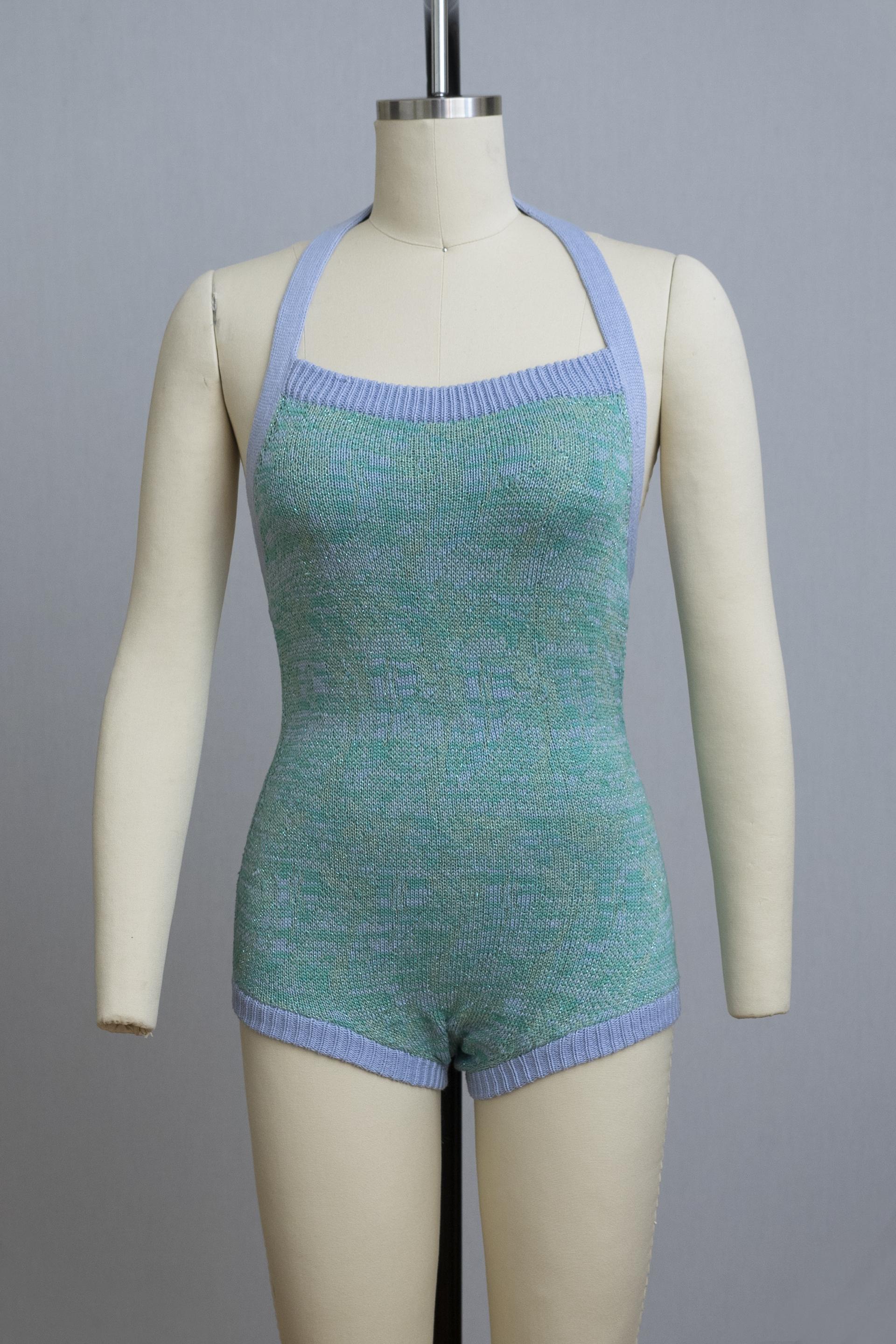
Image

Image
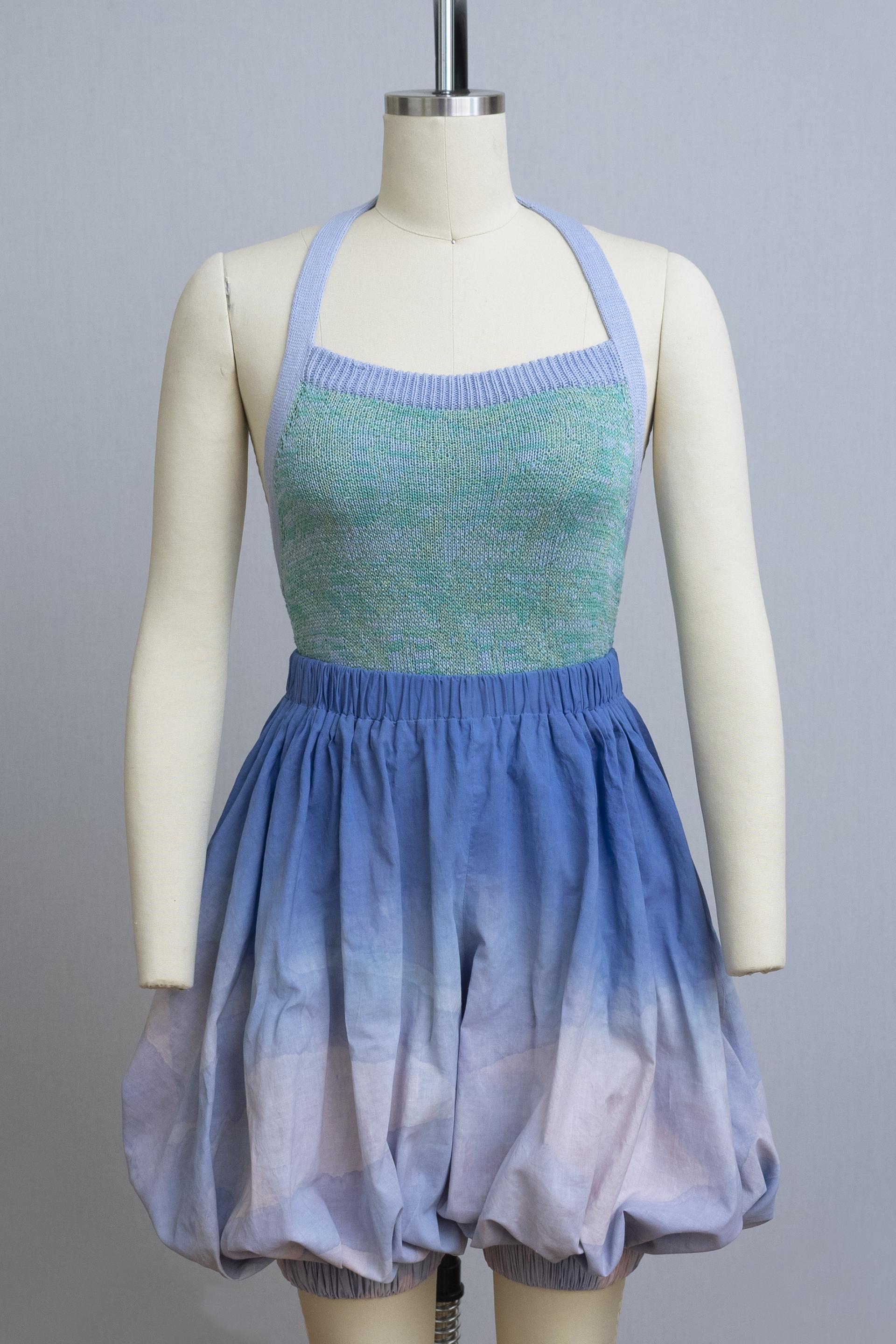
Image

Image
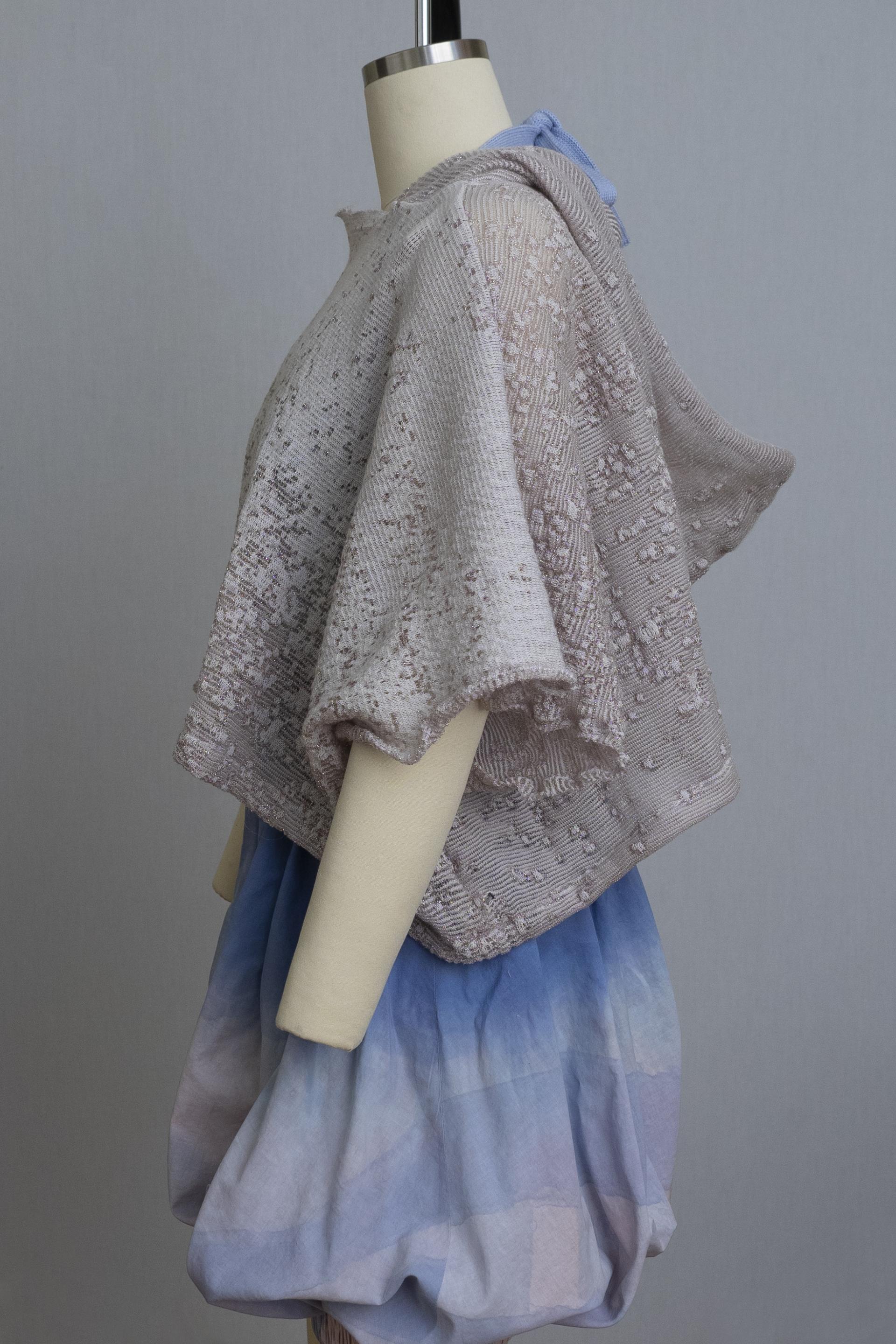
Image

Terra Huber
Terra has been a close friend of mine for about six years now. I am constantly in awe of their ability to articulate the nuances of navigating the world as an emotional and physical being. They have an unusual amount of self-awareness, and pay close attention to and take care of the people in their lives. This makes them an incredible friend, and they have been steadfast in their support of me through everything from the loss of my dad to a career change and navigating grad school. They never shied away from a conversation about grief after my experience with it, and since they lost their stepdad, Joe, last year, I knew that I wanted to be able to include them in this project. I was worried that asking Terra to have a conversation like this so early in their experience of grief would be challenging, but Terra was glad to take part. Having the opportunity to sit in dialogue with them about our shared experience of loss shone a light on Terra’s gift for humor, deep insight, and tenderness.
Jackie Joe died last year. Tell me about that experience of grief.
Terra I’ve grieved a number of times in my life, but Joe dying was different. He wasn’t the person I knew the longest now that I think about it. My grandfather died. Sure, I technically knew him longer. I met Joe when I had just turned 12. You know, there’s the familial love where you’re just like, “You’re my family so I love you.” He was family, but I also made the choice to love him. So it felt a little extra special that way, you know? Because he wasn’t my dad. I also remember the whole time I knew him. It was from an age when I actually knew what was going on.
J Yeah, right. I had never thought about that. That’s the age when you start to decide how you feel about people and who you want to love.
T And I liked him right off the bat, so that was really special. But I mean, other important people have died before in my life. Most very close to my mom. My grandfather, her best friend, one of her other best friends. Of course her husband, Joe.
It was just recently the anniversary of her best friend dying, and I can’t remember if it was 11 or 12 years ago. I’m going to ask her about that date again actually. And I’m going to start writing these things down because there are these people who have died throughout my life and I don’t necessarily remember when.
Grief’s not a thing I’ve dealt with very directly and maybe the forgetting when is part of that. But I do feel like Joe dying is the first death that I’ve experienced fully.
J Do you and your mom talk about this grief?
T I actually just had a long conversation with my mom about the stages of grief. She was reading some stuff out loud while we were on the phone. And I just feel like I don’t know how to grieve. Everyone says that there are these steps you go through, and I’m like, where’s the checklist? I don’t understand. Things are supposed to happen in an order, and I don’t know what that order is. I don’t know if I’ve experienced any of it. So it was nice to talk with her about it, but this is different for my mom and me. If your life hasn’t been spent with a person every day, certain things won’t trigger
your memory. Like my mom is still in the house she shared with Joe, in their bed. But my life, my daily life isn’t that different.
J Yeah, I’ve said those exact same words. I remember feeling really, really guilty about being able to escape my grief by being far away because it was so easy to go on as if he hadn’t died. But you want to honor the fact that he died.
T Honestly it feels like the worst thing ever. It makes it really hard. I want to feel it more. So sometimes I will think of it just to think of it. Just to remind myself. His funeral card has been sitting on my dresser. Sometimes I would accidentally see it when I was getting ready in the morning, but then sometimes I would look at it on purpose. It’s actually in a graveyard, this picture. [laughing]
J That’s so fucked up.
T I know.
You know another thing I wonder is, does escaping my grief mean I’ll never get to any point? Does that mean I’m stunted, and I’ll always be in some initial stage that I haven’t dealt with?
J Does your mom feel like she’s following the stages?
T To a degree. There were some that she talked about more than others. In January she was going through the anger stage. She was angry at him for dying.
J Sure. My mom was definitely angry at my dad for dying, too.
T She knew being mad was ridiculous. He didn’t want to die. He fought as hard as he could, but she’s still mad about it.
I hadn’t really thought about it until then, but I realized I’ve been mad about it, too. Honestly, I’m probably more mad about it than I am any more nuanced emotion. I think I’m just mad at the whole situation.
There was a long time where, although I really loved Joe, there was a bit of jealousy. I was an only child of a single mom who’d been single since I was one. She dated people before him, but no one fought for her attention at all. It was just me. There was always a part of me that was like, remember how great it was when it was just me and my mom? When there was no one else? And then I was like, well Terra, it looks like you got what you wanted. But I didn’t want this at all. I’m not happy about it and I never really thought I would be.
J I think it makes sense to go there, to explore the potential of emotional extremes even when they aren’t real, when you’re trying to rationalize the intense feelings that are a part of grief. Do you feel like the experience of losing Joe has changed the way you approach your relationship with your mom?
T Yeah. I feel more prepared to ask my mom tough questions. I’ve been talking to her more about family memories, things we’ve done, feelings, as opposed to just bitching about my week. I do that too, but I try to keep that to a minimum. Now I feel like I have no time to waste. I’m like, we need to talk about this.
J Is that because you know how quickly someone can be taken from you?
T She objectively has more memories than me, so there is a sense of urgency. It’s about Joe and our time together as a family, but it’s also just about everything. My mom has a lot of knowledge of these things, including my family history, my history. She knows my history better than I do. I’m not super close to most of my family. Our family unit was a little insular because of my mom’s disability. So she’s kind of the sole keeper of this information. There has been a certain sense of urgency for a while, but it got kicked up a lot of notches when Joe died.
J That’s kind of nice that you’re able to share all that now. My relationship with my mom is so different now than it was before my dad died, too. The way I talk with her has changed. I found it was a challenge at first to feel comfortable sharing my grief with her. She had a long period when he first died where she was like, “Why did you do that? Why the fuck did you have to die?”
T My mom has said that in the last few weeks she’s felt glimmers of joy again. She said she’ll cry over beautiful things. She’s like that. Just seeing a beautiful sunset out the window, that kind of thing.
She was talking about things that they enjoyed doing together that she can still do and are nice for her. There are some things she still can’t do, like listening to Leonard Cohen. But they saw Judy Collins together about five years ago, who is someone Joe had always really liked. It was one of the last times they went to something like a concert together. And there’s this one Judy Collins song that my mom’s been listening to that’s a thing she can do and feel nice about. It still might make her cry, but she doesn’t feel bad. She doesn’t feel devastated listening to it.
J That’s really wonderful. Are there times when you feel your grief more acutely than others?
T Sometimes. The other day at work, I thought of something and was like, “Oh my god I’m going to start crying while I’m working.” I don’t remember what it was. Sometimes it’s a thing in a song or in a podcast or something someone says that will trigger it, or I’ll just randomly think of something that then makes me think of him.
J Is there a way you would describe your grief physically? Are there specific places in your body that you feel it?
T Yeah. For me it’s definitely the center of my chest. The sensation kind of starts there and then it shoots up into my throat. It makes me feel like I have to clench my teeth so that it doesn’t come out somehow.
J Have you ever not clenched and just let it out?
T Oh, yeah.
J What does that feel like?
T I mean, it doesn’t feel great in the moment. But it does afterwards. It’s worth it. The only times I don’t let myself cry are when it’s really inappropriate, like at work or something. But I don’t try to stop it too much. I cry when I talk to my mom or to my partner, Dan, and I’m also pretty sure it’s happened alone too. But usually someone’s around. Would you cry if you were alone?
J Oh god, I cried so much when I was alone.
T The thing is I share a bedroom with someone. If I were alone more, I would cry alone more.
J I cried driving home from work all the time.
T Oh, I’ve done that. Yes. That’s dangerous. It always feels like I’m catching my breath, because I’ll breathe out slowly and linger on the last bit of remaining air for too long. I forget to take a new breath. Sometimes I wonder if that part of my autonomic nervous system is broken. I don’t even feel a burning in my lungs like I need air, I just remember that breathing is a thing I should be doing. How long could I survive on that residual oxygen from my last breath after I’ve let most of it out?
J Remembering to breathe is like reminding yourself that the grief is still there. For me, going to the ocean is a way to remind myself of the loss that is now a part of my life. Maybe this is a good place to transition to talking about water, since I’ve been searching for a way to describe the connection between water and grief.
T Isn’t it a Freudian thing? Water represents the unconscious mind. So that might be a place where you access the more painful parts of yourself or your experiences. I’m not surprised to hear that you’ve made a connection between water and grief.
J Yeah, that’s a good point. Are there ways in which going to the ocean or being near water helps you heal, too?
T I grew up on Lake Erie, so I am pretty biased towards fresh water. The ocean has always felt scary because I’m less familiar with it, but I’m low to medium key scared of all water. I’m not a good swimmer. I could probably save my own life in a short distance, but I can’t tread water or float very well. And I tire easily. Probably because I forget to breathe.
Actually one of my first memories is of water. My mom and her friend Gina were each holding one of my hands. I remember they were just walking me into the lake really slowly, like responsible adults, when suddenly I was submerged. In my mind I always thought that they somehow both dunked me under the water, into a wave, on purpose. I think in reality there was a wave that was probably just a little too big, and some degree of water was coming towards me. But still I was scared of water my whole life because I thought they had dunked me. My mom says that’s not what happened, and I have no reason to believe she wouldn’t be honest about that. But still I think I felt they didn’t stop it from happening or protect me. So I have some kind of primordial water scar.
J But you still love being by the water?
T I really need to be by water. I can’t imagine living somewhere that’s landlocked. I don’t mean by the ocean, I just mean by a large body of water. Even when I was in Philadelphia, the ocean wasn’t that far. I couldn’t see it, but I was still on the coast so I was good. It’s fully in my head. I don’t even see the fucking water here in Boston. I could be anywhere! But just knowing that it’s there is necessary. I see water as an escape route, which is so funny because it’s actually a block. I can go every direction but that direction, and somehow I feel safer that it’s there.
J Yeah, when I get to a body of water I feel a release that I don’t feel anywhere else. But I’m terrified of the deep sea, and I also can’t swim very well. I think for me there’s something about the otherworldliness of it. There’s something beyond what I can see. It’s scary, but it’s also kind of a relief.
T I didn’t really spend much time at beaches by the ocean at any point in my life until I moved here. And that felt really nice. I was excited to move here for that reason.
J So you knew before you came here that you were excited about being by the ocean?
T Yeah, even though I have this fear of water and salt water in particular, I also have a sense that it is necessary to my life. These feelings are one and the same. I love your project because it’s helping me delve in to the parallels in my own life between water and the unconscious, something that I’ve been thinking about for years but haven’t taken the time to parse out too thoroughly.
J I remember you wrote that beautiful Instagram post a couple of years ago when you were in North Carolina for your step sister’s wedding. You talked about the warmth of the water and the way you tried to ready yourself to receive the gifts the ocean had to offer. It seemed like you were aware of how the ocean helps you reach a deeper part of your psyche then.
T Yeah, that was an experience. The moon was so fucking amazing. There was so much heat lightning, in three different colors. It was crazy. That was crazy.
I feel like the beach does heighten emotions. Maybe I’ve come to symbolically face those parts of myself that are otherwise difficult to access through facing the water. It’s a way to turn an internal experience into one that I can physically contend with in the world. When I walk up to the water it almost feels like approaching the sacred. I feel small and deferential. The water is like an invitation to approach your self. It’s both mysterious and familiar. I kind of wonder if that’s why I need to be by it: because I feel like I wouldn’t have access to some part of me without it. I visit the beach to access parts of myself that would otherwise feel hidden.
Image

Image

Image

Image
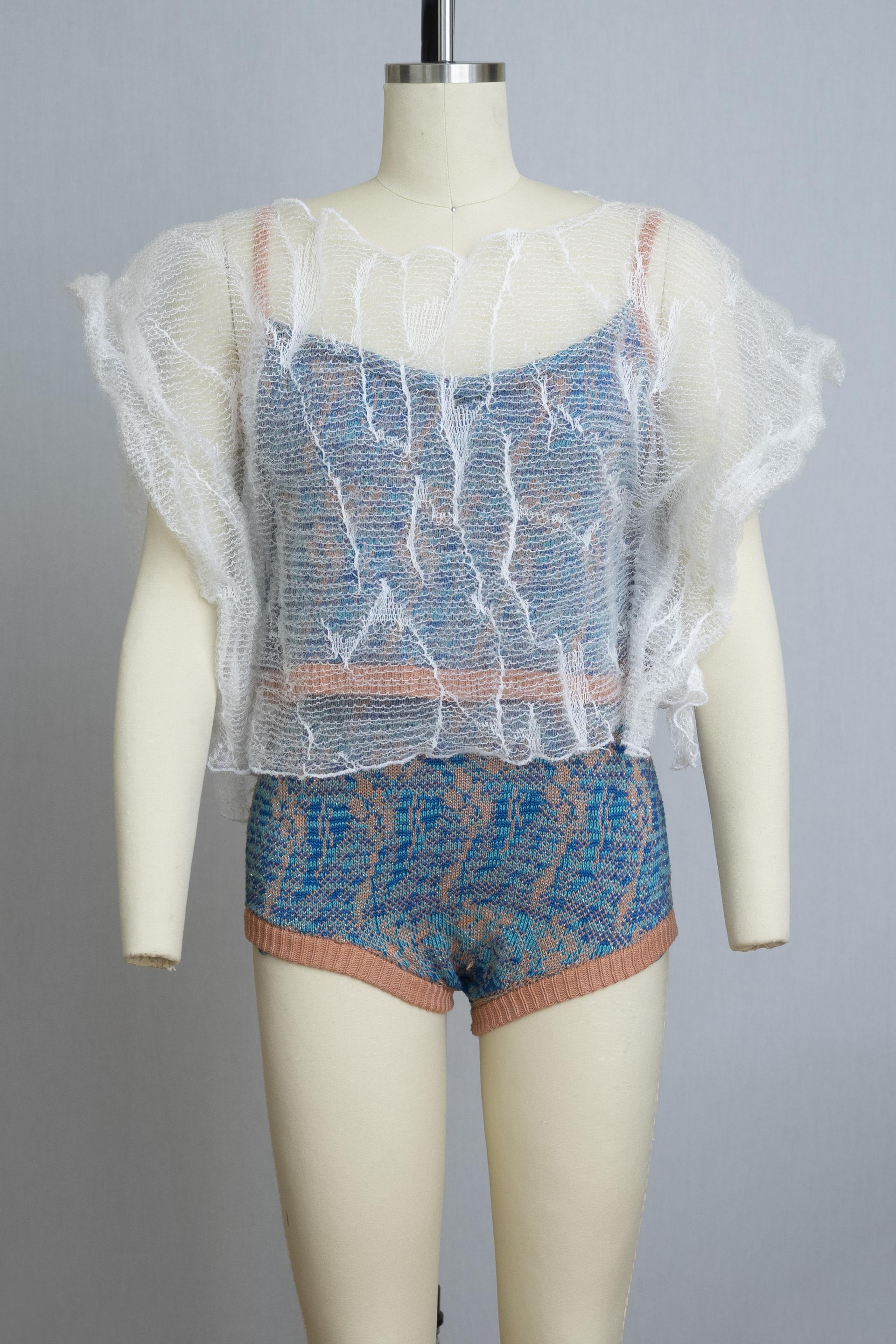
Image

Sheila Novak
Sheila and I met as art majors in college and got to know each other fairly well during a month-long course in New York City our junior year. As happens with many college friendships, we lost touch after graduating, due to nothing other than physical distance and life moving forward. Sheila lost her mother to ovarian cancer not long after my dad passed away, and I remember reaching out to her on Facebook after hearing the news, knowing that hearing from people who had also lost parents was one of the few things that helped me at the time. Not long after that, Sheila and her partner, Kurt, moved to Boston, where I was also living, and our friendship was rekindled. I still remember going to their apartment in Jamaica Plain for the first time and talking for hours over dinner about losing a parent and trying to regain footing as an artist in the aftermath. It only felt natural to include her in this project, since we have conversations a lot like these fairly regularly. When I went to her home to record this conversation, a very close friend of Kurt’s had just passed away, compounding the grief she already held for her mom, and making the topic all the more prescient and demonstrative of the constant place grief can hold in our lives.
Jackie Your mom died not too long after I lost my dad. Can you tell me a bit about your experience with grief since then?
Sheila ’m still relatively new to grief in some ways, which I’m grateful for, but I have had deep experiences with it. Prior to three years ago, grief felt more theoretical—not a feeling I knew personally. And now it feels like it has marked so much of my life and really made me into who I am. I used to be very aware if I was with someone and they didn’t know my mom had died. That intensity of emotion and anxiety has receded some but generally I would say that knowing me personally means knowing that I am someone who has had a very personal experience with grief.
I started grieving before my mother died, which was very painful. When she was so sick she couldn’t communicate anymore I realized what I had lost and felt a large awareness of how her loss would impact me for the rest of my life. I remember coming home to Minnesota after taking care of her for a week in Iowa and breaking down with my friend Anda. I realized that I never had gotten her advice on all the big chapters of my life—like having children and buying a home and navigating a marriage. And when she got so sick it became clear to me that no matter how much longer she lived, she would inevitably miss these things.
Recently I’ve been able to have some curiosity about grief while also being totally overwhelmed by it. For example, at Mark’s memorial service last weekend I was seeing and hearing these cues that reminded me of my mom, even in a space that was about a different person. I was feeling this upwelling of grief and wasn’t able to identify who it was for. I’ve been asking myself since then if this is just one emotion that I’ll feel again and again and it’ll just get bigger and include more people? Or do we experience grief in different ways for different people?
J That’s a really good question.
S I had a little breakthrough in therapy two weeks ago regarding life without my mom. It was one of those realizations that seems so obvious, but it took three years for me to get to. Our family worked as a matriarchy. My mom was totally in charge. Since she died, I’ve been trying to see my family exist as we had before, just without her. I assumed that we would all operate and interact in the same way. I think my siblings and I have been able to independently develop relationships with each other, so not much has changed there. But when it comes to my family as a unit, we don’t operate well anymore. We have to find a totally new equilibrium because it’s a totally new family. And I don’t recognize it quite yet. It’s been interesting to allow myself to see this as a process of reaching an equilibrium as opposed to trying to be something we probably will never be.This is a different family and we lost our matriarch. That’s not insignificant.
The other thing I’ve realized is that my mom totally fabricated my relationship with my dad. I think if she had been a different person, my relationship with my dad would be totally different.
J I think about that a lot too. I never had a sense of who my parents were independent of each other. They were such a unit. So yeah, that makes a lot of sense. You’re getting to know who your dad is for real.
S And I’m kind of not into him. It’s hard to know if I’m meeting my dad as he always was, or if he really was the man I knew and he’s just a different person now. It could be a little bit of both.
J He has more space now to let parts of himself live than he did before.
S Totally. And he isn’t being told how to be in relationship to us anymore, which means he’s being in a relationship with us in a way that makes sense to him. Which totally doesn’t make sense to me. I’m like, “Oh that’s what makes sense to you? That’s shitty.”
J Do you think your siblings share this feeling of having to navigate a new family unit post-matriarch with you?
S I think so. But it’s hard to know for sure. Sharing our experiences of loss has been a challenge. It’s hard to talk about my mom at all with my family. Maybe because it’s too painful. I actually can’t really break the riddle of why. And I feel like that makes the feeling of loss greater because . . .
J Because then they’re truly missing.
S They’re truly missing, and I have to conjure stories about her alone. And how hard is that, trying to push through the baggage of illness.
J And the mother-daughter relationship, which is a complicated relationship to begin with.
S Totally. It gets really complicated to find a memory that feels like something I want to hold on to. I think it would be easier to do if other people were participating in sharing memories. Actually, before my dad started dating, I had planned that over Christmas we would create a storytelling space for my mom. Especially for Bridget and Daniel’s partners, who never met my mom, it would be so important to tell stories about her, to carry her life into their lives. She was a complicated person, and I’m definitely not suggesting we glorify her. We can talk about when she was kind of sassy and bitchy. That’s part of it. I want to be able to acknowledge that. But then my dad started dating this woman and I feel like we missed the opportunity to heal as a family and to figure out how to talk about her.
J For myself, I feel like I’m losing the full picture of who my dad was because I just miss him, and all I’ve allowed myself to think about or talk about are the positive things.
S That’s complicated. Especially in myself, I think that acknowledging strengths and weaknesses is important. And not feeling like the existence of weaknesses equates to being bad. But that gets really hard to apply to other people, especially people who are no longer here. That’s been a project and a process.
J Do you feel like the way that you’ve experienced grief has changed as time has passed?
S Totally. There are moments where, like with Mark’s death, the raw pain of grief has manifested. And like I was saying earlier, the feeling of grief is so similar for him that it feels like the grief for my mom. Which then makes me wonder if all grief will feel like grieving my mom. At this moment, my grief has rebounded in a big way as I navigate a new loss.
J How does grief manifest in your body?
S I don’t know if this is true for everyone, but I think that when someone you love dies, it reminds you of the fact that you’re mortal. My mom died of ovarian cancer, which is sometimes linked to genetics. I don’t trust my body in some intense ways because her body killed her. It makes my relationship to my body a little bit more intense, and I think the manifestations of that will be long-lasting. And then with Mark, he died climbing, which is what my partner, Kurt, does. And so for me, there’s also this sense of fear combined with the grief.
Over the past few weeks I’ve been thinking about lungs, this feeling of restriction in breathing. Trying to take a deep breath and feeling like I can only get my lungs to go so wide, and I’m not able to relax in my core in a way that I want to.
J I remember you telling me about grief meridians once. Can you talk a bit about that?
S Soon after my mom died, I got a massage with a guy who studied Eastern and Western technique. As he was doing the massage, he discovered this tightness in the back of my armpit. And I thought that was so weird, but turns out that according to Chinese medicine, this area is a meridian for grief. And then I just started bawling in my massage. This notion that grief does live in our body and that there’s a whole meridian that absorbs the grief—whether or not you believe it, it doesn’t seem strange to me that our bodies hold grief.
J Not at all. I feel like I’ve noticed in the past few years my upper back becoming a lot more tense than it had been before. Are there times when you feel the pain of grief more acutely than others?
S I think any kind of shift in my life is when I feel grief. Any time I move to a new place I think about what my mom would think. How would she see this space? Not so much to perform to her expectations, but in the sense of cherishing my life with her.
And everything with my dad has brought rounds of more grief. After he told me he was dating someone, I started having nightmares again. I had some pretty intense nightmares after my mom died. So much so that I briefly became an insomniac. When she died, my dad didn’t call the mortician until after we had all gotten home so that we had some time with her body.
J That must have been so hard to walk in and not have seen the moment, but to just see her dead body.
S Yeah, exactly. I think there was something important about it, but I ended up having dreams for a month about her dead body reawakening and being like, “What? I’m not dead! I’m alive!” And then I’d wake up and have to renegotiate the loss as reality.
So when my dad started dating, I was having some bad dreams again, I think because the loss became even more permanent. We expect our father to hold her memory, and if he’s starting to move away from that, then that feels like a secondary form of loss.
J You and I both use water as a source of inspiration and a way to express our grief in our practices, and I was hoping that you could talk a bit about where that started and what water symbolizes for you.
S My ideas about water actually started around the time my mom was diagnosed and initially felt separate from her illness. I was thinking about eco-feminism and how the oppression of women has been linked with the oppression of the earth. But I was also inclined to think about water from a place of spirituality. There are some songs and hymns that deal with water that I grew up singing and also became really attracted to in college.
J Do you know any off the top of your head?
S There’s one in particular that I sing to myself when I’m by water that I can totally sing for you. I actually sang it this weekend during a walk along the Potomac in DC with some friends and family after Mark’s memorial. Some people were having more fun and some people were in a lot of pain, so I suggested we would have a moment of silence to acknowledge the fact that we were all together due to loss. And to think about Mark. And I ended up singing the song. I think it’s the one that I’m most attracted to because it acknowledges being in a low place and also asks us how we give to the world. That’s part of the lens of how I try to live my life but is also a lens that’s really hard to have when you’re so internally focused on grief.
Every time I feel this way
This old familiar sinking
I will lay my troubles down by the water
Where the river will never run dry
I’m gonna let myself be lifted
I’m gonna let myself be lifted
I’m gonna let myself be lifted
By and by
I will lay my troubles down by the water
Where the river will never run dry
It’s been said and I do believe
As you ask
So shall you receive
So take from me these troubles
Bring me sweet release
Where the river will never run dry
Hallelujah
Hallelujah
Hallelujah
By and by
I will lay my troubles down by the water
Where the river will never run dry
There is a river in this heart of hearts
With a knowingness
Of my highest good
I am willing
I will do my part
Where the river will never run dry
This river will never run dry
J That’s beautiful.
S I really love the imagery of laying troubles down by water. I think anytime I’m around a body of water, it is soothing in this very physiological way. To me, everything about life is encapsulated in this one element.
I also think that for me, water is not simply soothing. It has the capacity to be very destructive, too. My family’s home was flooded in 2008 and that was super traumatizing. So I think also having a deep respect for the power of water is important.
One time, the summer after my mom died, Kurt and I were on a road trip. I was looking at this beautiful glacier and realizing that my children would know neither my mom nor the glaciers. And that kind of compounded layers of grief for our world with grief for her.
Image

Image
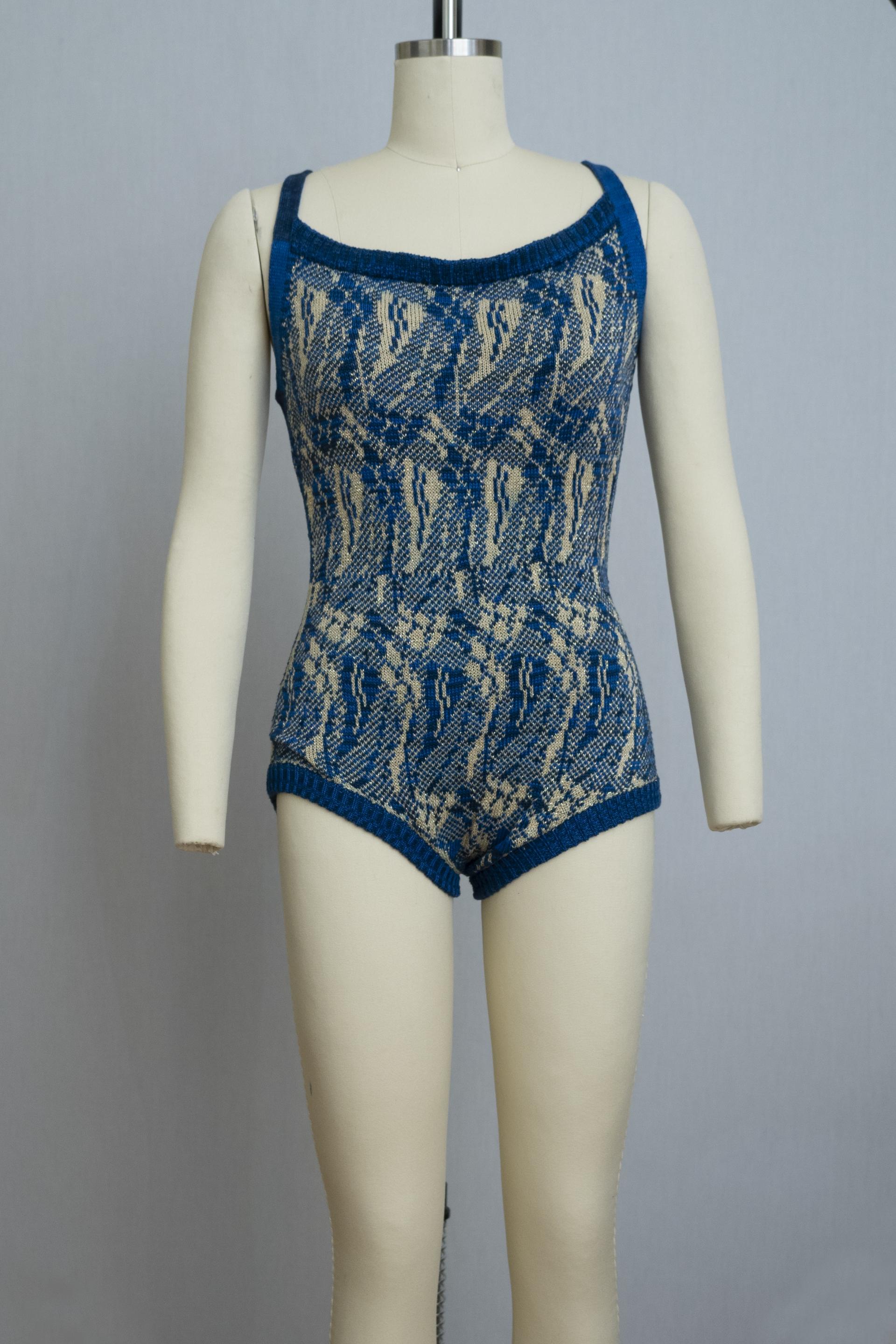
Image

Image
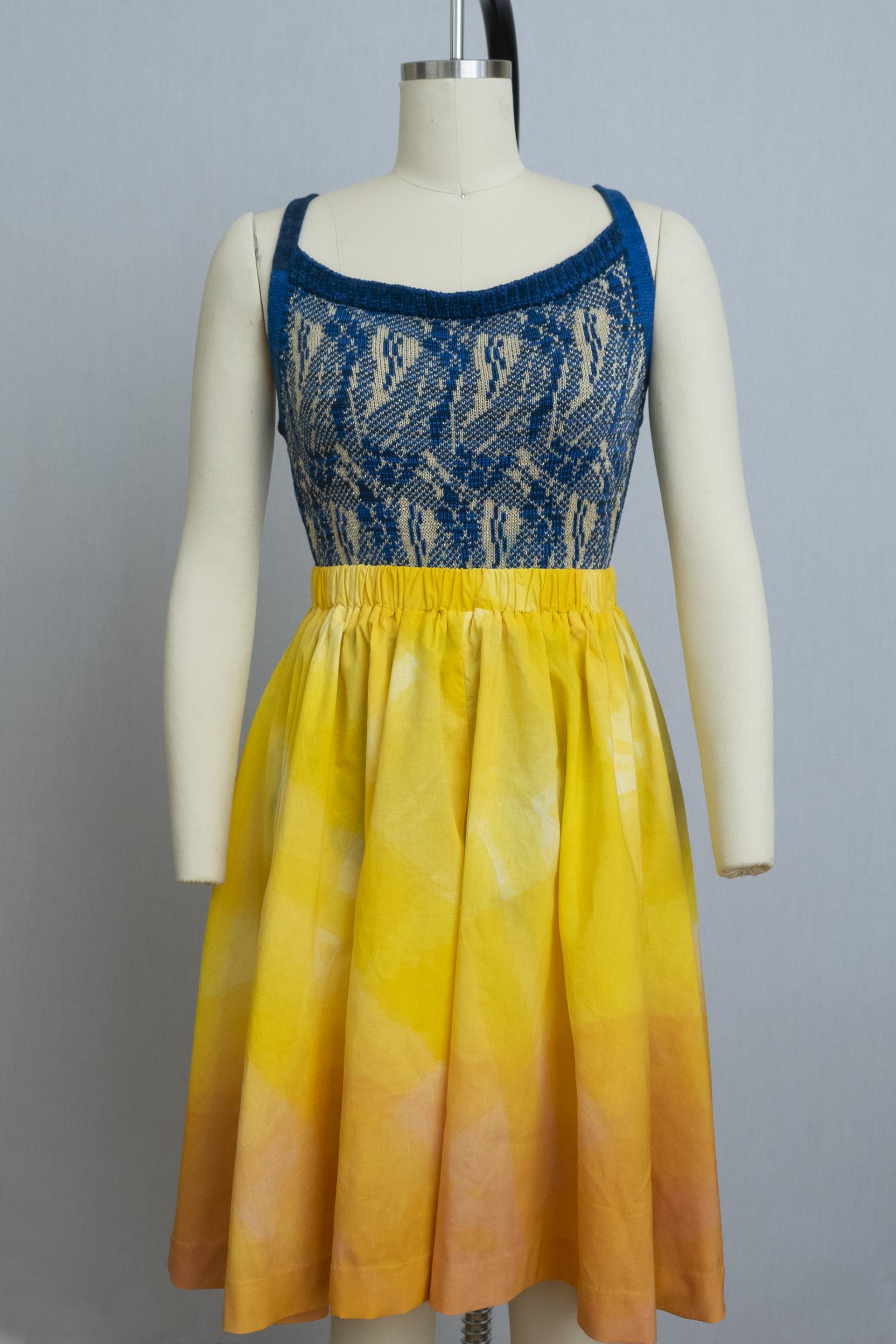
Andrea and Greg Scott
I wasn’t sure at first if I wanted to interview my mom and brother for this project. We talk about Dad in passing all the time, but we hadn’t ever sat down and had an intentional conversation about our personal experiences with his death and the resulting grief. There was a lot I felt nervous about addressing--sometimes in the early stages, I had a hard time talking about my own grief with my mom because hers felt so much bigger than mine. But I think enough time has gone by that it felt healthy for us to do. He was very different things to each of us, and my experience of grieving him when I lived halfway across the country from my mom and brother felt almost like a thing of my own making. But I’m glad that I added their voices to this conversation. It made me feel like my experience of grief was more connected to my family than I felt at the time. It is real, and I’m not alone.
Jackie Could you start by talking about what your grief was like initially and how it’s changed over the years?
Andrea Sure. That’s a place to start. Do you want to go, Greg, or do you want me to?
Greg I would love it if you would start.
A Sure. So I would describe my initial grief as like nothing I’ve ever experienced. In a physical and emotional way, it was everything. It was so debilitating that I wasn’t sure I was going to survive it. That’s how just mind-bending it was. And it was surprising to me because I had known for so long that he wasn’t going to live forever, you know? And It’s really only in hindsight that I know how devastated I was. When I think back on it, I did stuff completely out of a rote behavior. Like, what do you do? You get up, you go take a shower. And it was like that for a really, really long time. And it got better as I made myself do some things that I really wasn’t expecting to be able to do.
J Like what?
A Like going to Florida that first January. Making myself do that all alone, rent a car, find my way to the condo, to the grocery store.
J I remember you being really nervous about getting there by yourself.
A Yeah. I had never done that in a strange place. So that was a big hump to get over. And really every time I’ve taken a trip, I feel like it’s helped me. Somehow getting out of the bubble, you know?
J Do you feel like our trip to Italy helped you? Because I remember that felt really hard in the moment, to be there without Dad.
A It definitely helped. But yeah, it was so bittersweet. You know?
J Yeah.
A I think that’s probably always going to be the case when it’s just us. We’re missing that other link. And with this last trip that I took to Egypt, I really felt alive again for the first time. And it figures, we come home and we’re in fucking lockdown. Like, is this really necessary? Do we have to get slapped down like this?
G I know.
J Don’t get cocky. Right?
A Yeah. Except then I think about people that, you know, don’t have a place to live in all this. So I come back to that awareness of what I have and I did too during the worst of the grief, and it helped me every single time. I was thankful for so many things. The relationship that we had, the fact that you guys were able to be with us at the end. I mean, there were so many things that made it easier on me than it could have been.
J Yeah. We are very lucky. What about you, Greg?
G It’s really hard for me to articulate exactly how I felt. I mean, we’re talking literally date of death to afterwards?
J Yeah. Like how did it feel? How did it affect the way you were able to live your life?
G It was just numbness and void more than anything. I was definitely kind of blurry-eyed for a while and just tried to keep doing whatever I was supposed to be doing.
A Yeah, letting that muscle memory take over.
G Yeah. I didn’t really feel like there was anything that I was doing that was really great at that point. You know, I wasn’t really running a lot. I didn’t have any cool hobbies. I was at least young enough at work, where I was like, Oh, this is something that I can take pride in a little bit. I didn’t have the jaded perspective that I do now.
I remember thinking a lot about still being at the company Dad had worked for and just being like, Wow, this is so fucking crazy. What would life have been like if he had survived or if he had lived even just a little longer and could have worked more, or even if he hadn’t worked more just . . .
A Just to have that ear.
G Yeah. So I mean, going back to your question, I felt super numb. I tried to just go into day-to day-activities. There was a moment when he was in hospice that I just sort of lost it. And then after that I didn’t really think about it for a long time. I just tried to not. I don’t know. Not denial, but it was like, Okay, I’m definitely going to be stereotypical and bury this a little bit.
A That’s protection.
G Yeah. Oh it totally was! I didn’t intentionally do that, but it was just my natural reaction. And I think over the years I’ve let myself become more open to just feeling things as they come.
And going back to the work situation, I think that’s been the hardest part of this last year. Being as frustrated as I’ve been at UHG and just knowing that he was truly the ultimate resource. And maybe that was just a crutch in some ways, and other ways it’s just like . . .
A No, you guys got ripped off. He left too soon.
J Do you ever talk about Dad’s death with your friends?
G I’ve always just felt really awkward talking about it with most people.
A Your friend Adam?
G Yeah, I talk with Adam so much.
A He’s somebody who has been through it.
G I remember talking with him a lot when dad was still sick. But there are very few people who I feel like I can go into the depth of it with.
A People don’t get it.
J It’s hard if you haven’t lived it.
G I don’t think people really love talking about death either. Even when I frame his memory as something I think fondly of, people get kind of weird. And I’m like, I’m not doing this to bring you down.
A They want to make you feel better, and I get that. But the sort of rub on the back, it’s like, No, I don’t need that.
J Yeah. I think I’ve started to care less about that. So when I talk about him with people, it’s just because I want to bring him up. But I remember feeling really awkward initially, because it felt like every time I just mentioned his name, people would be like, Oh no, I don’t know how to respond to that.
A So how else has it changed for you, Jackie?
J I’ve been thinking about that a lot. I don’t know if I’ve ever talked about this with you guys, but when I first went back to Boston after he died it was really weird for me because my life didn’t look any different. And so I felt like I was constantly trying to remind myself and make myself feel it. Because otherwise I’d just kind of forget that he was gone. And I think that was partially why I was really struggling at work and making a ton of mistakes. It was just because I wasn’t focused on being there.
I think partially the reason I started trying to make work about dad’s death and grief more broadly was because I wanted to bring him into my new life somehow. This is the first place I’ve moved to that he doesn’t know about and I started this degree after he died. So I guess it’s just kind of always been a thing that I’m trying to remind myself of. But it’s also become less like a burden.
A That’s a really good way of putting it.
J Yeah. Like the anniversary of his death this past year, I thought about it leading up to that date, but then I remember I texted you on June 2nd just to say hi, and you said thank you. And it took me a second to realize that it was because it was June 2nd. I felt really, really bad about that at first, because in the past two years I had done something intentional that day to celebrate him. But then I realized that it’s probably a good thing that I’m not dwelling on the anniversary of his death.
A That’s another thing that changed for me—the lead up to the anniversary. The first spring after he died was horrible and I didn’t even really understand why. It’s not an issue this year at all. But that first year after his death, I just re-lived everything leading up to his death in a visceral way. When you talk about the burden being lifted, I feel like that was a huge burden that I wasn’t sure was ever going to go away. I’m hugely relieved that it did.
G It was so beautiful, that month leading up to him dying. Fucking spring days are never going to feel the same.
A Yeah. I know. It’s true. Like being out on the deck.
G That picture of me grilling with him? It was so gorgeous out.
J Yeah. I also wanted to ask about what kinds of memories you try to hold on to and which you’ve tried to let go of. I feel weird even saying it, but I think because I was so far from home for so long I actually have tried to hold on to the memories of taking care of him when he was in hospice. Because it was the time that I was closest. And I wonder if that’s a memory you would rather let go of.
A So for me, I’m finding that it’s hard to remember any of it. Like my life with him. I have to remind myself that it was real. And some of that I think is because I’ve stayed in this house and, it’s like, you know, Where are you?
I’ve actually been writing down the story of when we first met and all the things we did and the places we went. It was all secret because nobody at work knew. And how we were little kids, just madly in love. And it was fun. I really try to remember that stuff because there’s a lot that I don’t want to remember. The thing that I can still hear is me making him laugh. I really miss doing that.
G I feel like it was so rare that he would really just geek out over something.
J I can’t really remember that.
G I have this vivid memory. It’s one of the only things from the last month of his life that was really, really funny. We were talking after I came home from work one day and I was telling dad about some toilet that I had walked into at work and it was a disaster. And he was just sitting there and he was like, Oh, I’ve seen some royally fucked up toilets in my day.
J and A [laughter]
A He loved toilet humor.
G Yeah, it was fucking hilarious.
J I feel like I don’t have very many memories of his sense of humor.
A Well, he was pretty serious.
J I feel like I got that side of him more.
A But he got people’s humor. You know what I mean? Like, he thought I was funny. No wonder I fell in love with him. You make somebody laugh and that’s it.
I thought of him yesterday because I cranked up the stereo and I was dancing in the great room. I was remembering when we finished that room and we had the stereo equipment and the TV and no furniture. We used to dance there all the time.
J Really?
A Yeah. Before the furniture came. So, yeah, that actually got me a little choked up. I haven’t cried in a really long time. And I did. I did get a little choked up. But, oh well. It’s all right.
J I was talking to my friend Annie about her mom who’d died like 15 years ago. To me it seemed like Annie has a super vivid memory of all of the events leading up to that and what it was like taking care of her mom and the medical issues. I was very impressed because I feel like I’ve already really quickly lost a lot of memories.
A That’s all right. I think that’s protection. I mean, I can bring them all back. Like just thinking about those two weeks of radiation, it all started coming back to me. I can stop myself though, you know? There’s no good reason to do that.
J Right.
A Except to think about how good we were at dealing with that stuff.
J I think that’s one of the reasons that I hold on to the memory of being home and taking care of Dad. We were such a team. That was all we had to focus on, and we didn’t fight.
A Yeah, I think it spoke very highly of us as a team, all four of us.
But that was very intentional on dad’s and my part from the very beginning. It was just gonna be who we were, we weren’t going to let it change us.
J I mean, it did.
A Yes.
J I think it did.
A But I think in some good ways. Who knows? We don’t know yet. It did what it did.
J I’ve talked to so many people who have lost parents. And I would be curious, Mom, to hear you talk about how losing dad compared to losing Nana and Popop.
A I have some things to say about losing my mother but I’m not sure I know exactly how to articulate them. I wish I had been in a different place when she died because I think I should have stood up to my sister about a few things. Like we really should have had a memorial service. And I miss my mother, you know. I will be honest with you, I miss her.
And as far as losing my father, this sounds so weird, but I was relieved when he died because I sat by his bed too. And he made the decision not to have dialysis. It was his choice. And I didn’t have a warm and fuzzy relationship with him. But I had resolved a lot of the issues before he died. So, I knew it was going to be hard for my mother after he went, but I never felt a big gaping hole in my life when my father died.
You know, the thing that I will tell you, because I’ve lost a lot of people now, is that I was not prepared for what it would feel like to lose Dad. I mean, I still am not sure who I am without him, if that makes sense.
J Oh, absolutely. One of the more challenging things I wanted to talk about is how our family has changed. Part of that is getting to know who you are without Dad, because the two of you were such a unit. I feel like I never really developed a good picture of you as individual people.
A Well, I don’t think we were. We really were one person.
J One thing we haven’t talked about yet is how grief feels for you physically.
A Do you remember right after he died, I had that pain all the way down the right side of my body? I mean that’s a physical manifestation of grief. And it lasted for like two months.
J Did anything make it go away?
A Time. And then I would say the general feeling I had was like the top of my head was missing. Like I just couldn’t focus.
G Yeah.
J Same for you, Greg?
G I remember when I would think about it too much, my stomach would start flipping. It kind of felt like pre-race jitters. It was pure adrenaline, anxiety. And then I would say I was just fuzzy. I felt like I could not concentrate for long periods of time. Or short periods even.
A I would get this Superman feeling when we would go down to Mayo. I’d be hyperaware, on top of all the questions and thinking about what I was going to do at home as soon as I walked through the door to make things normal for you guys. And that Superman power was taken away the minute he died. It was just gone and it was not coming back.
G But you didn’t have any reason to feel like you had to be on your A-game anymore.
A I couldn’t even if I wanted to. I would cry literally trying to pay bills some days, which I had always done. It wasn’t a new job, you know? It was like everything was overwhelming.
J I’d never seen you cry before dad died.
A I remember you saying that.
G Yeah. Like maybe twice.
A I wasn’t a crier.
J You used to hate it when I cried.
A I know, it’s terrible.
J I do think you’ve gotten more understanding of overwhelming emotional responses.
A Well, yeah. Nothing like experiencing it.
G I don’t know why, but my emotional reaction has not been crying very frequently. I can remember breaking down a few times leading up to his death, and then just being like, yeah, I literally cannot even shed a tear.
J I don’t cry about dad much anymore. Every once in a while when I see someone who reminds me of him. When I was walking in Swan Point Cemetery this morning I got kind of choked up because there was a couple that was around your age sitting on a bench together. And I know you’re relieved that dad’s not around during this pandemic, but I’m sad for you. It fucking sucks that you’re all alone.
A Oh, no kidding. On the Egypt trip I was thinking about how much fun it would have been with him. But also there was no way he would have ever been able to do it.
J That’s what’s hard to remember. It’s like, there’s no shiny alternate reality in which he’s still alive. It would have been hell. Whenever I get sad about him not being around anymore, I think about that.
A Yes.
G I have a video of dad when you guys were watching me race in college. It’s really funny because it’s a super non-memorable race.
He recorded most of the 1500 meter dash and he was standing with Coach Craig, and it’s just the two of them talking about me during the race. And it’s partly really nice to hear him, and it’s also like, Fuck. Craig asks how I’m feeling and Dad says, “He gave me a look before the race that I know all too well means defeat.” And I ended up almost winning my heat. I rewatched it recently and I was like, God damn it. I want him to be able to watch me run and see me have something other than a defeatist mentality. I always felt a little bit like he thought I was weak.
A I don’t think he understood it. It wasn’t that he thought you were any way. He just didn’t understand it because it was so foreign to his way. Because he was a bull. I mean, if he was gonna do something, he was just gonna fucking do it all the way.
G Right, and I think I’m more like that than I had maybe let on when I was younger. I think that’s been the thing recently. I’m like, Man I really wish that he could see this.
A Well, some people would say, “Oh, he sees you!” Which, like, whatever.
G Yeah, are we shooting the shit with him? Are we drinking Sauterne together? No. No. So shut the fuck up.
A Part of me hopes that there is some sort of awareness though.
J I do remember in the room when he died just feeling like, What the? How can a body go from having life in it to having no life in it? And the thing that used to be in it that made it alive is just gone. Where does that go?
A Plus, wasn’t it Scott and Brad who came to the door to collect his body? [Note to the reader: My dad’s name was Brad Scott.]
J I forgot about that!
G I remember opening the door and I was like, Nah, you can’t come in.
A I think I said, “You couldn’t have told us you were Jim and Bob?”
J They didn’t get it.
A I do remember us hysterically laughing in the kitchen about that afterwards though.
J I think if anything that was a gift for us, right? Yeah, that was freaky really.
A Really, we just could not have laughed harder about anything at that particular point. And I do have the flickering lights in the kitchen, which I turned off today. Like I’m sitting here in the kitchen right now and I don’t have the lights on that usually flicker when he’s around. So I don’t know if he’s listening to us or not.
Yeah, I miss him.
J Yeah, me too.
Image

Image
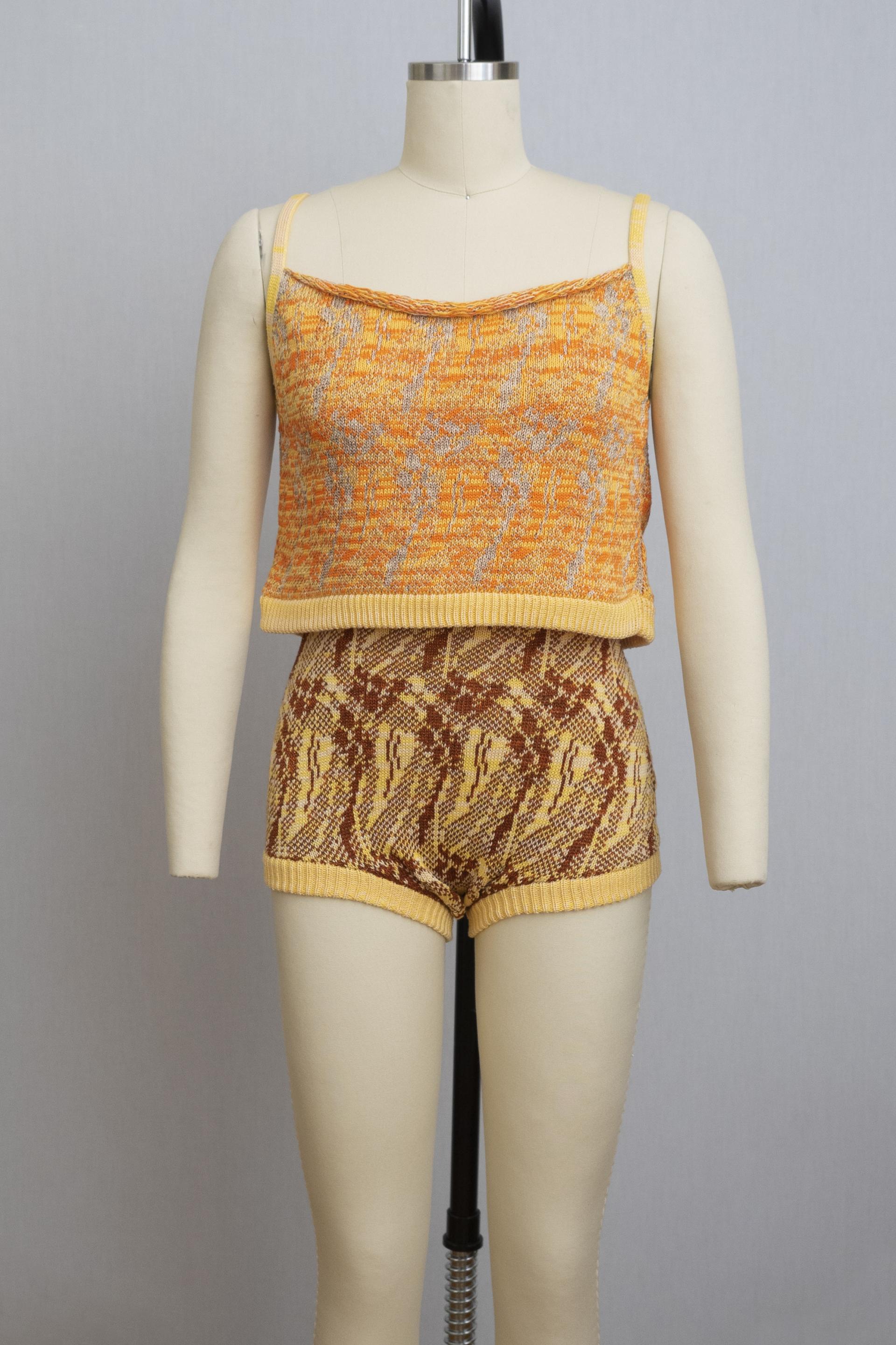
Image

Image
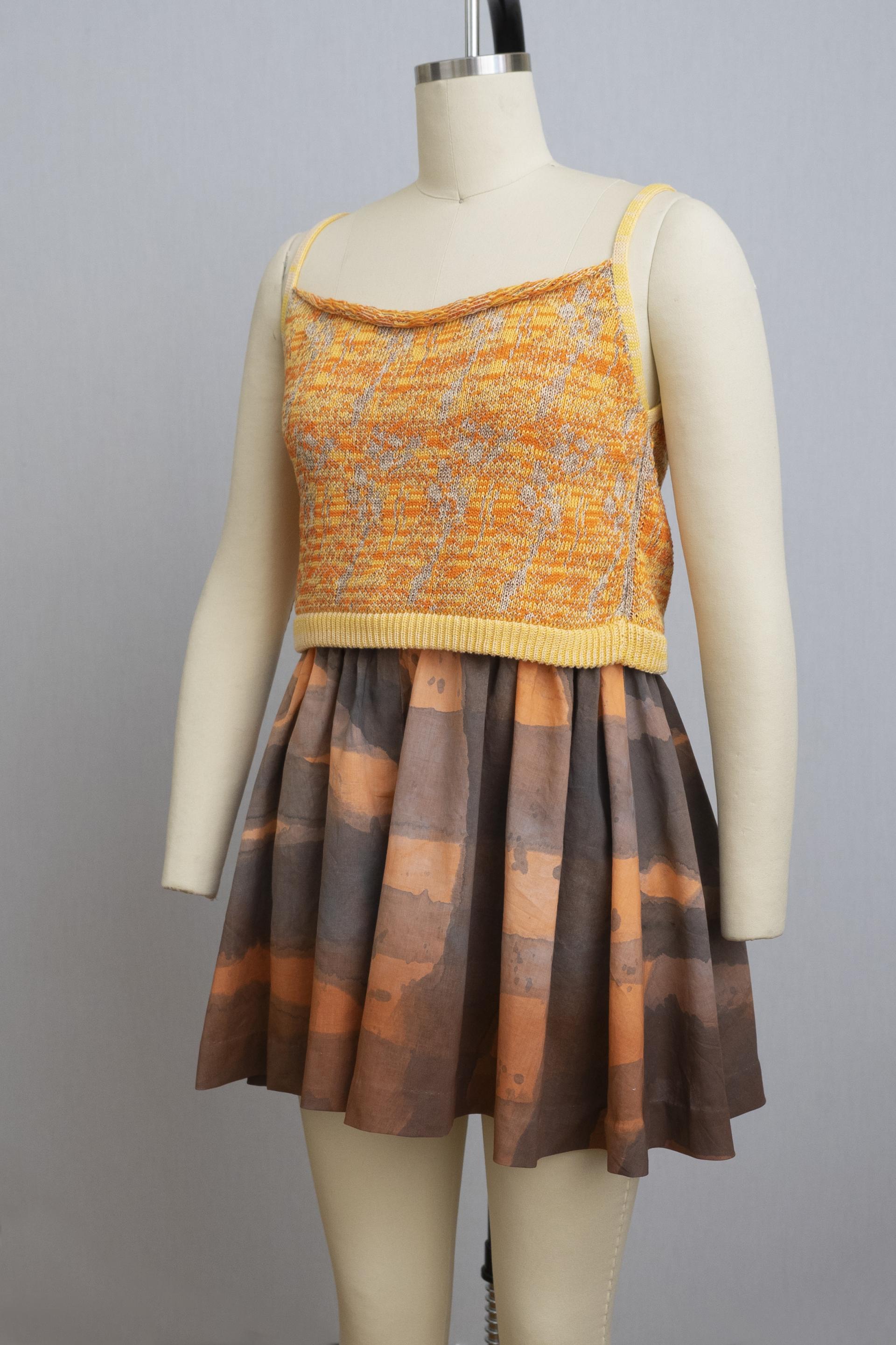
Annie Trainque
Coincidentally, I met Annie through Terra. It was on the Fourth of July three years ago now, at an epic party Terra threw in their backyard involving inflatable pools and squirt guns, and I instantly felt connected to her. My dad had passed away on June 2 of that year, and I was right in the middle of needing to talk about him incessantly. Annie was there for it. She didn’t shy away from listening to me in the way I needed to be listened to, and only shared that she had lost her mom a long time ago. I was hesitant to invite her to be a part of this project, not because I didn’t think she would be able to have the kind of insightful conversation I was hoping for, but because I wasn’t sure if it was something she wanted to talk about. She had never shared many specifics about her story with me. But she agreed wholeheartedly, and made the trip from Boston to Providence to spend an afternoon over lunch talking about her experience of loss. She came prepared with a stack of photographs that were integral to how she shared her story, and which I have reproduced here. Like Terra, she is impressively eloquent and able to recall moments in time and physical sensations with both humor and great detail. Her story is complicated and painful, and I am eternally grateful that she was willing to share it with me in the way that she did.
Annie interview
A This is the house I grew up in. I spent a lot of time just hanging out by myself in the barn and walking around the hundred acres.
J I don’t think I knew that you grew up on so much land.
A Yeah. We moved there when I was eight. We didn’t necessarily want to live there. My mom loved living in a farmhouse, but it was super drafty in the winter. We could only afford to heat the house at 55 degrees. And then when I was twelve my dad tried to kill my mom. He had been physically abusive for a long time and after that, she finally got the gumption to kick him out. She really tried to make the best of my childhood after that. She really tried to make life fun for my older sisters and I.
Here’s a photo of us one Easter. She had decorated the dining room and made a salad that looked like a decorated egg, and then she put balloons and an Easter Lily in the living room. So this photo is of me coming downstairs to all of this and being super surprised. She really had this joy and creativity about her. She had this sense of humor that was really delightful. She delighted in things. She cherished memories and she cherished creating joy for her kids. Because she realized how much sadness she had created by being married to an asshole.
J Was she always so joyous?
A Yeah. She always had a really good sense of humor. She always wanted to make things special for us, even though we had no money. And she was always smiling.
This photo is from my freshman year of college. She was in recovery from leukemia and hadn’t been diagnosed with brain cancer yet, but look how goofy she is! She’s a super goof. And then this photo is when I started realizing something was wrong.
J What was it that made you realize?
A We went out to dinner and she looked lovely, but she was chomping her food and she wasn’t herself, she wasn’t buoyant. She wasn’t laughing. It’s so subtle, but the left side of her face started not working. And she was walking with a cane. And I was such a bitch to her. I was like, What is wrong with you? Why are you acting this way? And she was like, Oh, it’s fine. It’s fine. The left side of my body is a little weak, but I’m going to the doctor about it and it’s fine. And I was just so startled by it that I didn’t know what to do.
And she also let me know that night that my dad had just moved back into the house. She didn’t have any money and also my dad’s house had just flooded, so he needed a place to stay. I was livid about that. And actually after he tried to kill her, I told my mom that if she ever let him back in, I would leave and never come back.
J Wow.
A I said that when I was 12. And so during this conversation, I was like, I’m sorry mom, I’m not coming home. And I didn’t, I stayed.
Then stuff started getting worse, but they were keeping how bad things really were secret from us. Eventually my sister Emily went to visit and realized that my mom was living on a couch and not able to get to the bathroom by herself. That was October of 2004. And then in November, she went to the doctor and they did a brain scan and realized that she had a tumor that was wrapped around her brainstem. So they were like, Enjoy Thanksgiving but if anything gets worse, you need to go to the emergency room immediately.
So all four of us kids went home for Thanksgiving and found that she couldn’t move and couldn’t talk. So we were like, Fuck that. We’re going to the emergency room immediately. And then they diagnosed her with brain cancer on my 19th birthday.
The way they did the biopsy to make the diagnosis rendered her speechless for a few days. And do you see how she has these beautiful blue eyes? She was so scared, and you could just see it in her eyes that she wanted to talk, like she was trying to communicate through her eyes and um . . . Yeah. It was really hard. Because I was 19. I was a kid, I was a baby.
J I can’t imagine how hard that must have been for you.
A And the doctor’s bedside manner was not great. She was just like, You have glioblastoma multiforme, and that’s the most aggressive brain cancer. It’s wrapped around your brainstem. We cannot operate. There’s a laser that we might be able to use, but if we were off at all, you would die instantly. So the treatment is radiation and chemotherapy. You have a month to live. And she turned to us and was basically like, Get ready to say goodbye.
All of us were there, including my dad. And my dad is the type of person where if you show any emotion, he will see you and raise you. And I could not control myself, so he made it about himself. My sisters had to take me out of the room cause I was losing it. I was like, How is this happening? How is this possibly happening?
I made it through my freshman year finals that December and then left school for a year to take care of her. Each of us took different jobs. My sister Rachel was the physical caretaker. Emily did all the paperwork and legal stuff, and then I was the PR person and would get messages out to our church. She was also so scared and sad that she was sick that she really needed someone with her all the time. So I would go to every radiation treatment with her. So that was my job, too, to do radiation treatment.
And then my dad would come at night because we just could not stand being around him.
J And he respected that?
A It took a while to sort that out because, for example, before that division of labor we were trying to figure out how to tackle this thing. And for those first two weeks, I was still in school. I still had to go to class and take my finals. And my dad told me that I was a bad daughter because I didn’t come all day, every day.
After he told me that I left the room and physically collapsed because I couldn’t believe how cruel he was and that this was my life. My mom’s dying. My dad has no compassion for me. My sisters and I are doing everything in our power to make the best of this situation.
So then she just kept on living for 11 months, getting better and getting worse and getting better and getting worse. And she was determined to live, like dying was not an option for her.
And so eventually, it worked out that my dad would come at night and my sisters and I would come during the day for three to four hours. And once we passed the one-month mark, we were like, Okay, well she seems to be getting a little better because of the radiation and chemo, so where’s this going? It threw us into a year of limbo because she was not dying anytime soon. She was so determined to live and to do well in physical therapy. At this point, the entire left side of her body was atrophying. But she was really determined to do as much as she could. And so we would do physical therapy. Even when she was in bed, we would do exercises with her. We would stretch her leg and tell her to push back on it. And any ounce of strength that she had, she found hope in that.
Her left arm went completely dead. And when you don’t move your arm a lot, the tendon in your shoulder starts to loosen. And so her shoulder basically just let go of her arm. But we would move her arm around for her, and that was how she danced. We would wiggle our shoulders at her and she would wiggle hers back.
It’s funny because I became very aware of my body as well. And I still think about what went wrong with her body and am like, I’m so thankful for my tendons. Things like that. The awareness of how fragile the body is.
J Yeah, how quickly it can just go.
A And how our brains are keeping it all together. It’s a miracle that things work. It’s much more believable that things shouldn’t work.
So these are a few pictures of her when she was in her final resting place. It was a nursing home that we found that was great. You can see that the hemispheres of her face are very different. And this was the arm that didn’t work and it would be on an armrest.
I brought a picture of her hand too, because you can see how swollen it would get.
J Wow, yeah.
A It would get really swollen and so we’d have to move it around. The fingers didn’t work anymore, but she would move them with her right arm and make sure that they were still separate.
So she was doing everything that she could to keep her body in shape. She would try to keep her face steady, because if she didn’t, one side of her face would just completely droop.
J That must have taken so much concentration all the time.
A Yeah, exactly. And for someone who loved to smile, that’s really hard.
J Was she able to retain any of the joy you talked about her having in your childhood?
A Well, what’s great about this illness is that it didn’t take her personality. It took her filter away, but her personality remained intact and so she would crack jokes. Laughter was still a huge part of what got us through.
J Thank you so much for sharing all that with me. How long was she in the nursing home for?
A I think that it was at least four months. She was at multiple hospitals before that. And then that’s where she died.
J I’m so impressed with how much you remember from that time. Thinking back to when my dad died, my memories are already foggy about what he was like physically and able to do and what we had to do for him. I’m interested in how you’ve held on to those memories and how your grief has changed over the years.
A It’s funny you say that because I feel like my memories are really foggy. Like I have snapshots in my mind of things. And I think the snapshots are mostly around regret and how I desperately wish that I could go back as a full grown adult and change what I did. Sometimes I still think, What could I have done more of? I should have given her more back rubs! Her back probably killed all the time. I wish the quality of life could have been better, but we were really doing everything we could. We just felt so protective of her.
But I think it’s probably because I went to eight years of therapy and talked about the experience and the pain a lot. The memories are probably because I was so close to her and because I lived it with my family. Even though now we hardly talk about her.
It’s funny to use these words, but it was such a vibrant and vital time. Because life was so precious in the moment. I guess because it was so fragile and everything felt like it had an immediacy to it. Like this might be the last time, or this might be the best she’ll be. Or this is the moment. Okay, she’ll probably die this week. And then like three months later, it’s like, Okay she’ll probably die this week.
J I remember that too. It’s exhausting. That idea of not knowing.
A Yeah. And I actually don’t have a whole lot of memories from my childhood, just because that was such a fraught and hideous time. And maybe because I was entering adulthood, the memories feel so much more complete. It’s interesting to hear you say that it sounds like I remember a lot because I feel like I don’t.
J I’m very interested in how time affects grief and memories. I’m wondering if you still feel like you have moments where you think about your memories more or if there are any triggers for the grief.
A Anything can trigger it. Thinking back to the early stages of it, it could come out of nowhere. Especially within the first five or ten years after. I could just be, you know, washing the dishes or going to work, and it would be like a big wave. Have you ever been in the ocean when a big wave hits you and it completely takes your breath away? And it essentially sucks all the air out of you. That’s how it would feel. I would just be like, Where did that come from? Why, and where and how, and please make it go away now. Just that complete shock of grief.
J That imagery is perfect. I’ve been exploring how my relationship with water can be a metaphor for the experience for grief. Do you think about water or the ocean as a significant space at all?
A So I have this strange relationship to the ocean because I have really fair skin and burned really badly as a kid. But I love the beach at night when it’s cold and windy and the sand is densely packed from the waves. I love the tactile nature of sand when it’s cold and dense. Something about that is very satisfying. And I love the sound too at night. There’s an intimacy at night with the ocean that I really like.
J I appreciate that. I think early morning and night at the beach are my favorite times too. Getting there before anyone else is there.
A I like going to the beach during the day in the winter or the fall because the air is different and the colors are different. I like the more muted ocean colors. The gray water. Deep blue, gray. I like the opposite of what everybody else likes about the beach. I like the ocean when nobody else wants to be there. When there’s an intimate moment.
J Totally. I totally get that. The off-season beach imagery makes me think of the experience of grief over a long period of time. Muted.
A Yeah, it was overwhelming at first, but now years and years later I’m definitely suppressing it. I choose not to remember because remembering and dwelling in it doesn’t do me any good. It’s just easier to function when it’s suppressed. And I’m glad I brought pictures and I’m glad I looked at them, but I very, very intentionally do not look at pictures usually. And I have some of her stuff and I don’t look at it. I really intentionally don’t look at it.
J How has the experience of caring for your mom so intensely and then grieving her for so long changed you?
A Well, because it was my early adulthood, it really defined my coming up, you know? And at the time I was a devout Christian going to church every week. That was my lifeline to her. I believed she was in heaven. I believed she had eternal life with God. I believed that when I died, I would see her again. That was really sustaining for me. But it was also holding me back from a lot of personal growth that I needed to do.
So she died in November 2006. I moved to Boston in May of 2007, and I met my now husband, Jarrod, in September of 2008. And between November of 2006 and September of 2008 I had been completely relying on my “relationship with God” to sustain me through the pain and anger. And then I met Jarrod, and he was this funny little creature who I was really into, but I could not understand why. He was an atheist, but we were connected on some weird sort of psychic level. He started asking me why I believed what I believed. And people in my church were very protective of me and kind of hated him. They didn’t want him around me. But I was also becoming my own person. And so then he started encouraging me to question my beliefs and at the same time I was taking a bunch of religion classes and also listening to a lot of Radio Lab. And it sounds so cheesy now because I was like 20 or 21 and so conflicted about my faith.
J It’s not cheesy!
A Yeah, it was serious. So finally, in like January of 2009 he and I were arguing all the time about Christianity and faith and I thought he was a complete jerk, but also wanted to be around him all the time. So I would bring him to church and then we would go out to lunch after and talk about it, and he was like, This is such bullshit. Why do you believe this? And I was like, Well, um, maybe I don’t know why. My faith and my grief were very intertwined at that point, so I would talk about my mom with him and explain that my faith was how I felt connected to her. I would say, This is my lifeline to her. This is the only thing I have left. Please don’t take that away from me.
But eventually I decided to take a break from church. And then over the next few months, no one from church called me. No one checked on me.
J Wow.
A Apparently the “family” I had at church didn’t care. And so it was like, Okay, check that one off the list. I’m not going back to that church, and also maybe I don’t believe all of this stuff. And then once I stopped confessing my sins, once I stopped relying on prayer to get me through the day, I realized that I was a lot stronger and more independent than I believed I was. I was a lot happier and less paralyzed.
J Yeah, that makes sense.
A And then a new grief set in, because losing my religion meant I had to let go of my mom again. I was slowly accepting that I believed that there was no heaven and that we don’t go somewhere special when we die, and that’s what I believe now. And so that process of letting go of these deeply held beliefs was difficult but felt like a weight being lifted off my shoulders.
I mean, looking at pictures can break me down like a crying child. But thinking about the fact that I won’t see her again doesn’t actually affect me in the way that it used to. I wish she were still here for so many reasons, but the letting go of the anticipation of seeing her again was helpful.
J It seems like it would be helpful because then you can focus more on being alive. Do you feel like after you let go of that anticipation, you were able to feel more joy around memorializing her? Is that something you can feel?
A I don’t think I’ve gotten there yet . . . That makes me so sad. It makes me sad that I’m still sad. There’s a lot that I wish I could have done for her. Now that I have a good job and have a good life. Because, and I’m not kidding, the first 20 years of my life were miserable. There was no relief. And then there was just enormous grief until I met Jarrod. And in some strange way, him coaxing me out of this religious fog that I had around me enabled me to see that I have agency over my choices. My mom always seemed to believe that life was happening to her, and it was God’s will. And that’s what I thought too. And then once someone came along who I happened to love and cherish said to me, You know, that’s not the only way. You can actually make your own choices and happen to life instead. Since that happened, life got way better. Having agency over my choices is really what makes a good life.
In a lot of ways, letting go of that belief also felt like letting go of her beliefs, because I was really a mirror image of her. I’m so much like her. She was a really engaging person and she lit up a room. So I try to emulate that, I try to emulate her good features and not focus so much on her faith.
J That resonates with me. That’s something that I haven’t thought about in a long time. How partly just through existing, we’re keeping their spirits alive.
Image
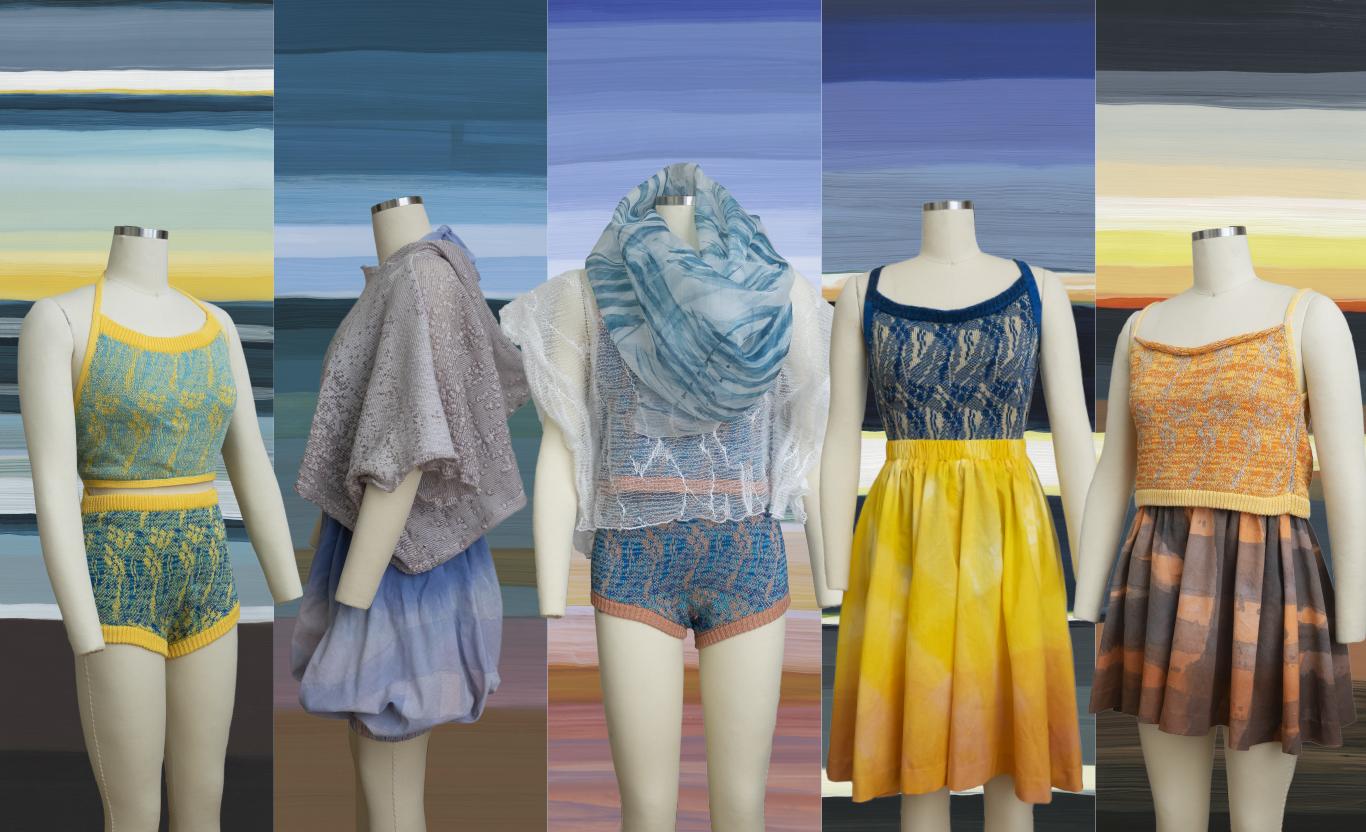
Thank Yous
I’m eternally grateful to so many for helping me to succeed in bringing this collection into the world. To my interviewees: Claire Spelkoman, Terra Huber, Sheila Novak, my mom, Andrea, and brother, Greg. Your stories are the heart of this work. To my thesis committee for their steadfast support and occasional cheerleading during some very challenging circumstances: Brooks Hagan, Anna Gitelson-Kahn, and Laurie Brewer. To Jen Liese: I couldn’t have made this book without you. You helped me find my voice. To my roommates for putting up with the “creative” mess that exploded in our apartment after lockdown began. To Olivia for her constant emotional support and encouragement. To all the RISD professors who encouraged and inspired me along the way: Bill Miller, Lindsay French, Anne Emlein, Michael Savoia, Ursula Wagner. You’re the reason I stuck with this. And to my family for their unconditional love and belief in my dreams.
Image
